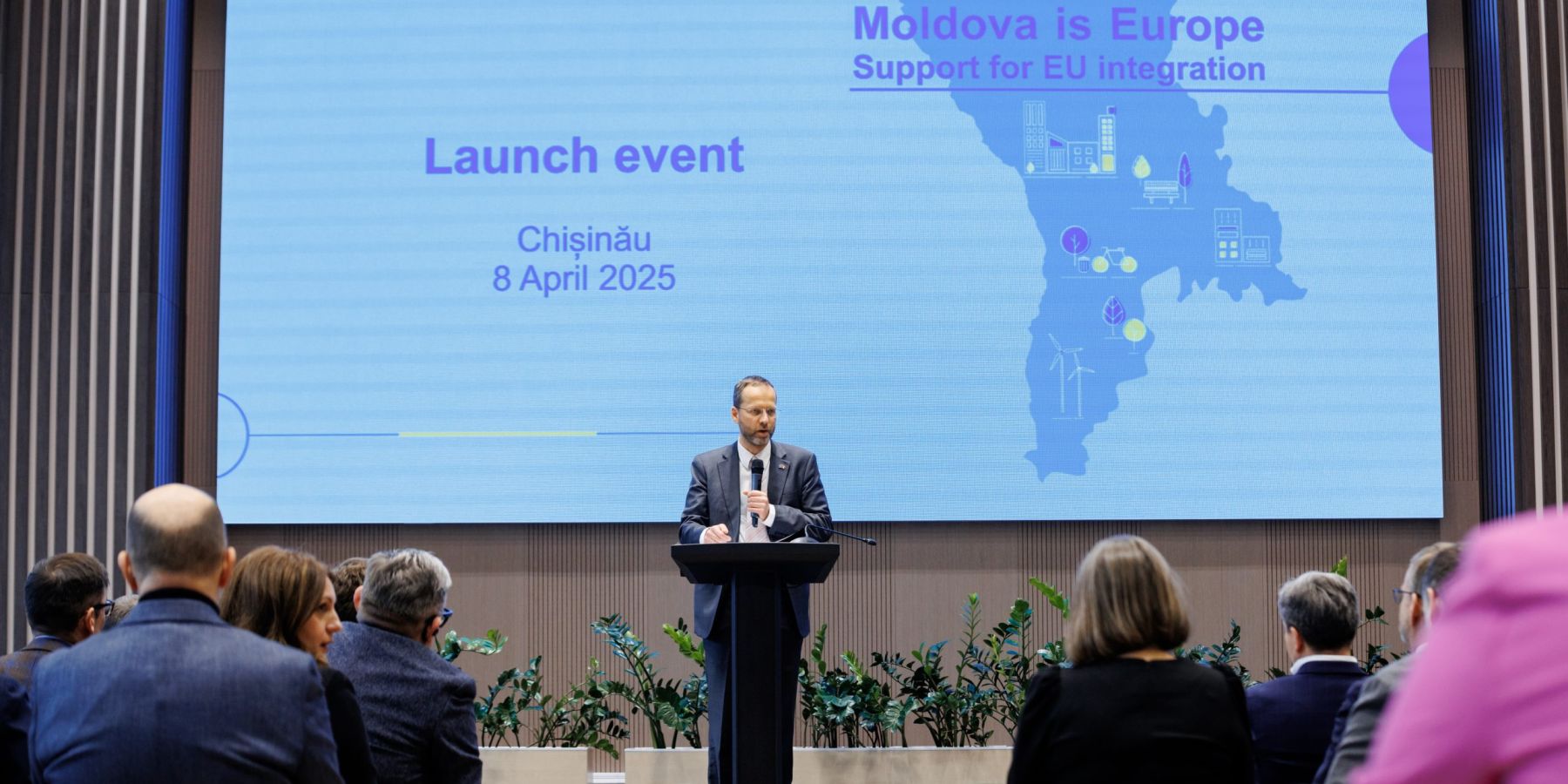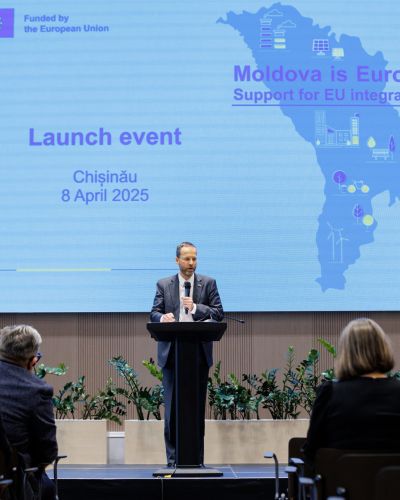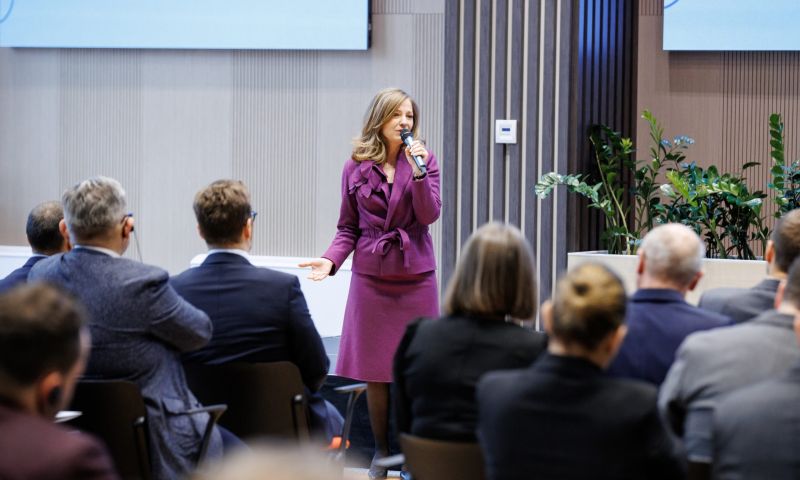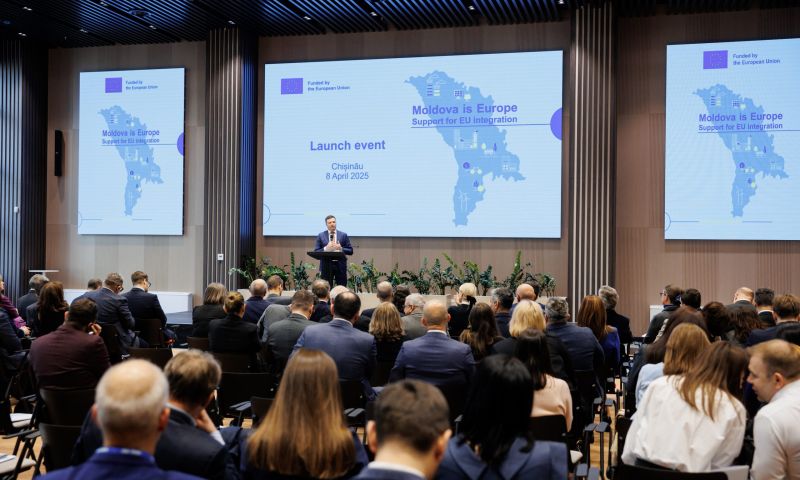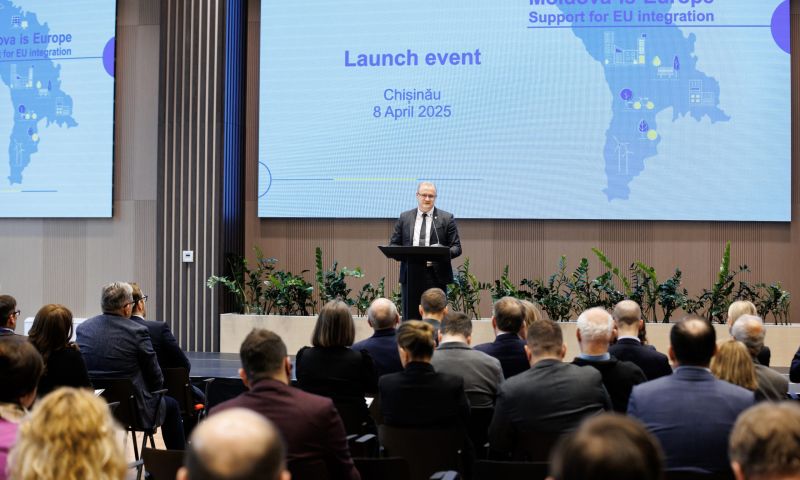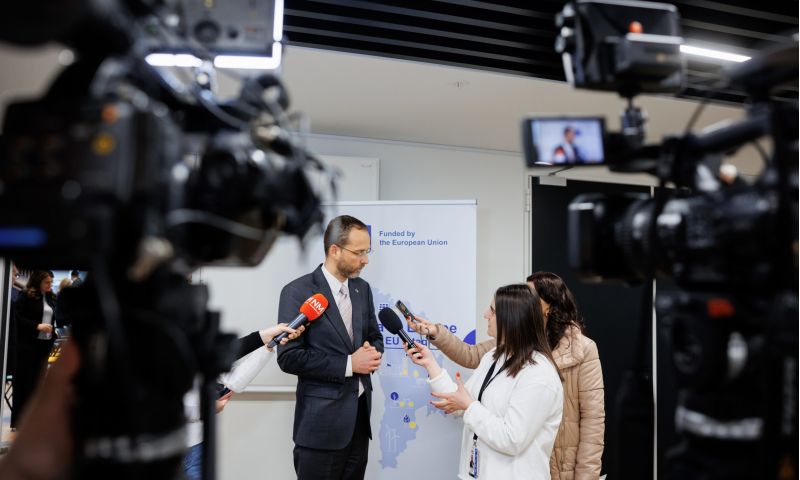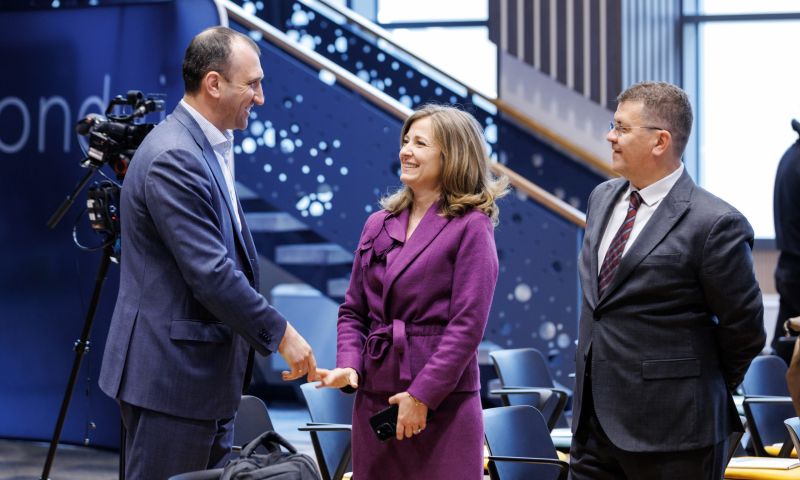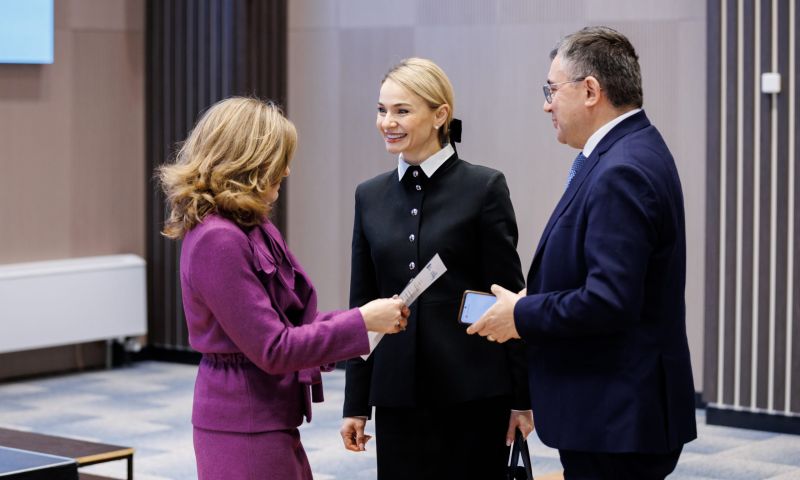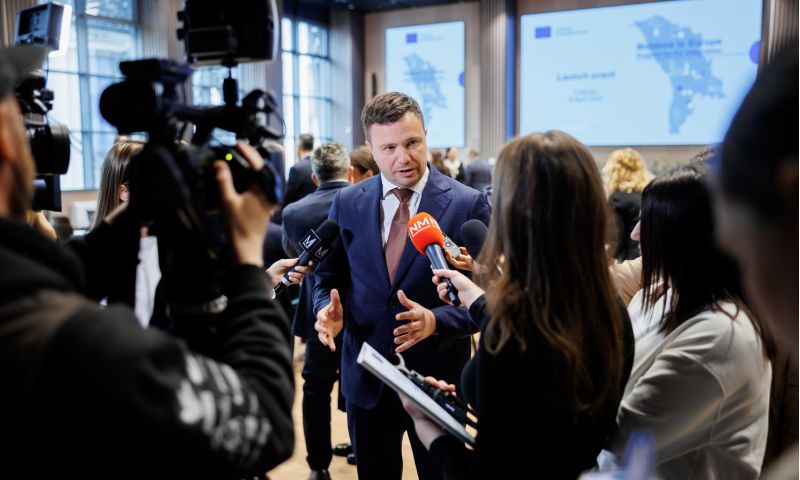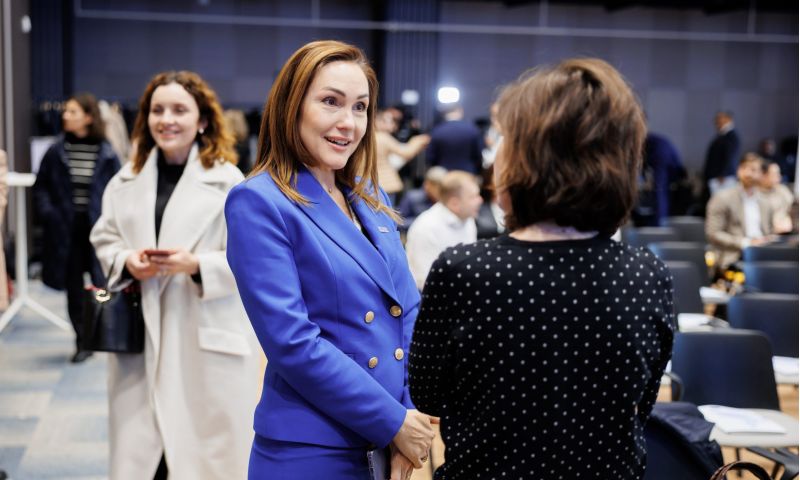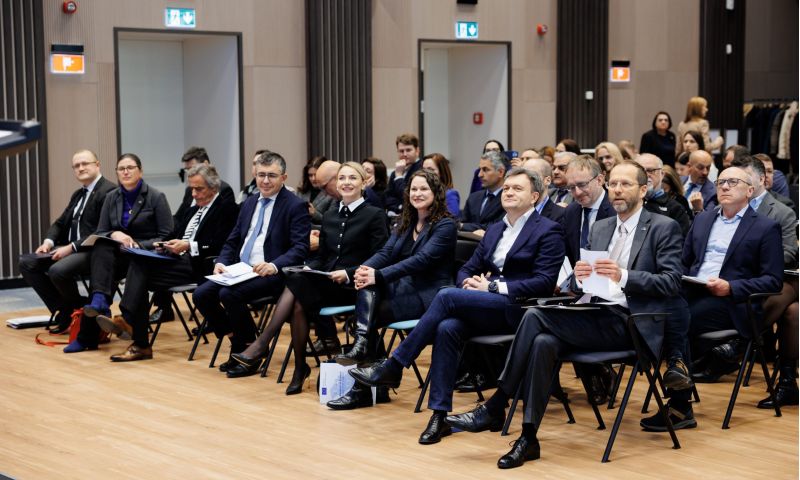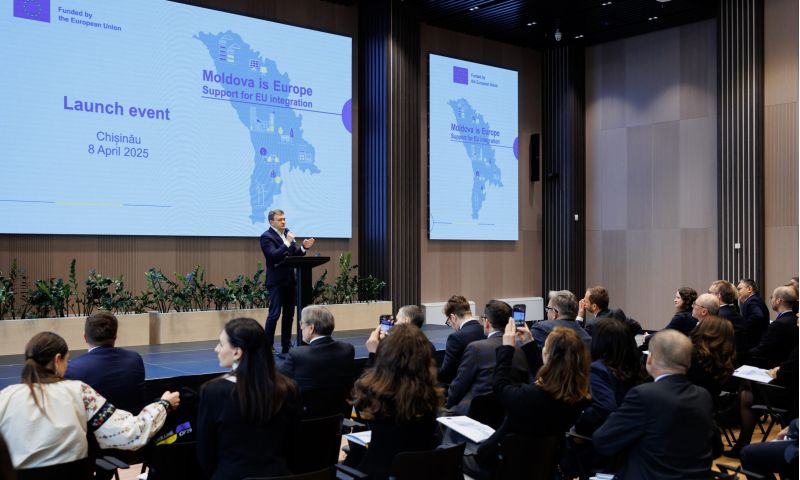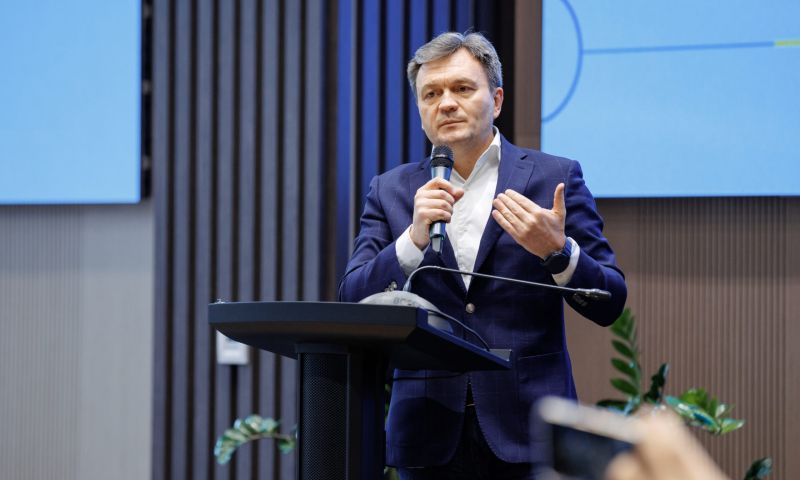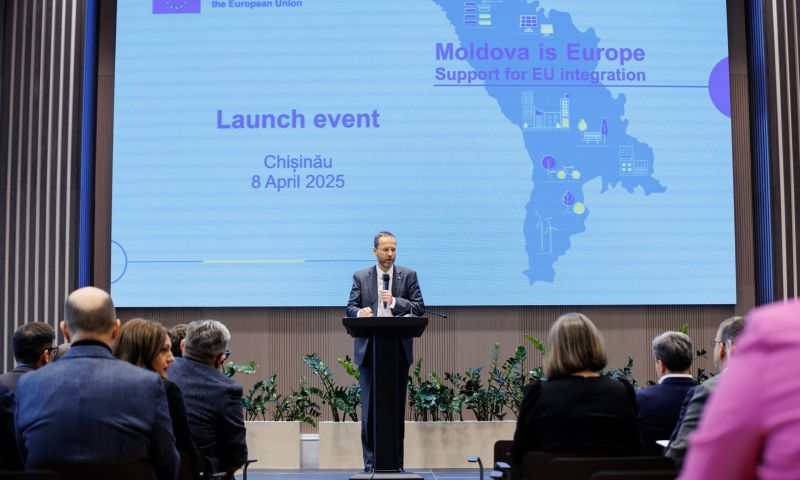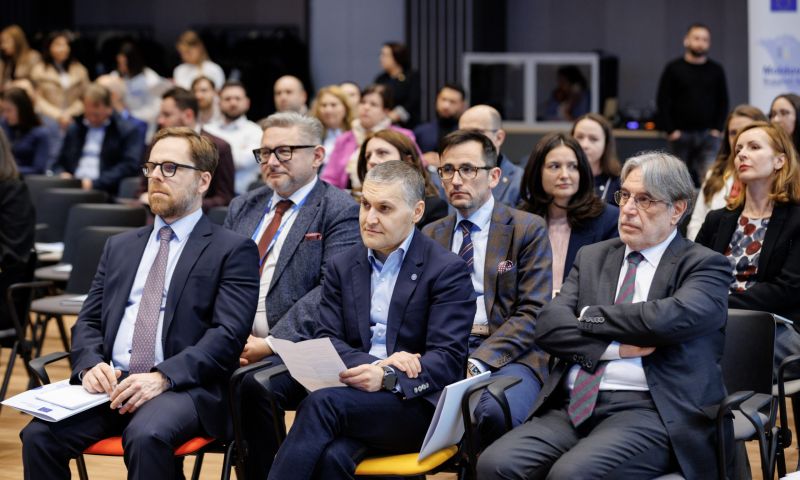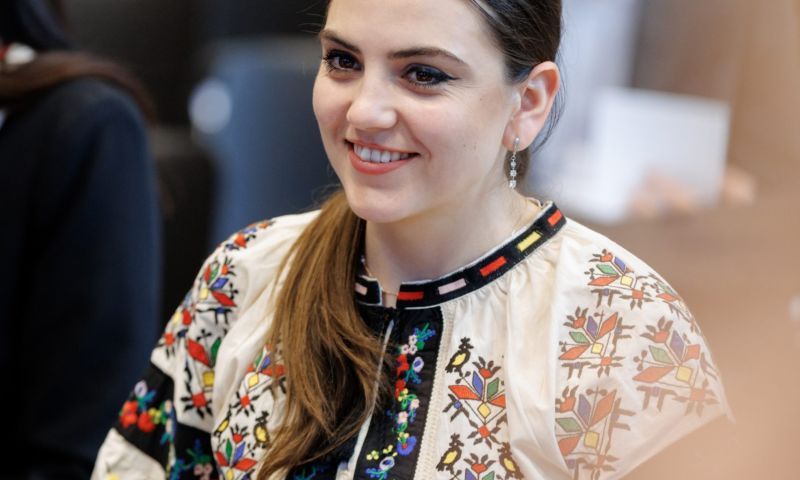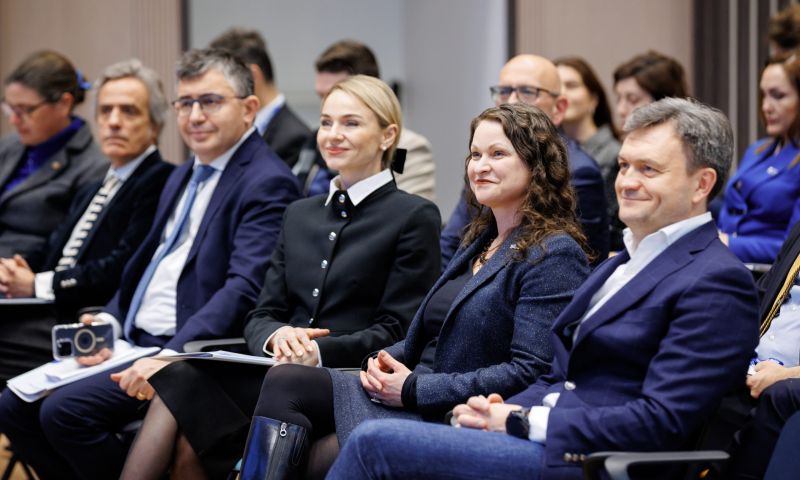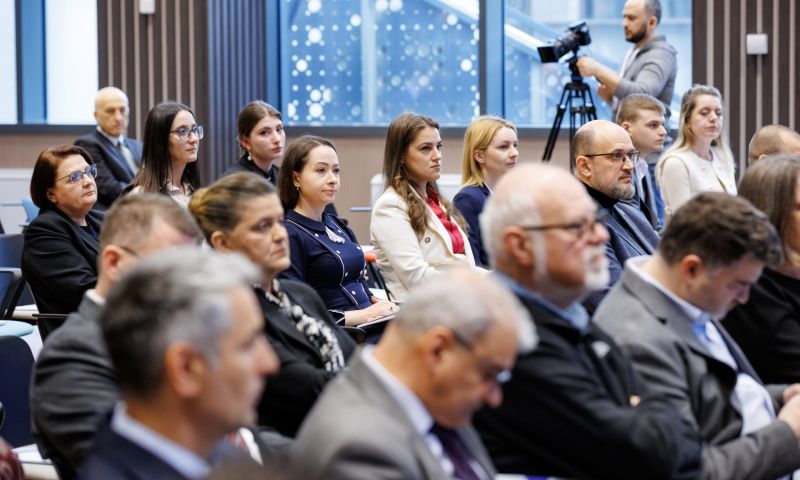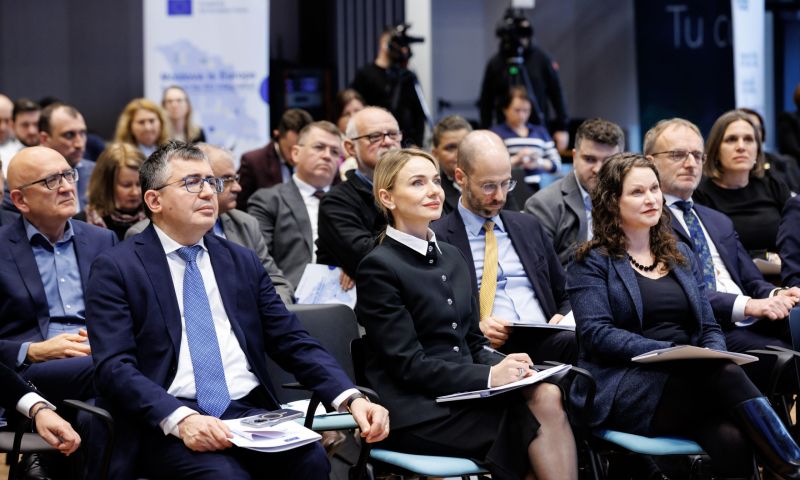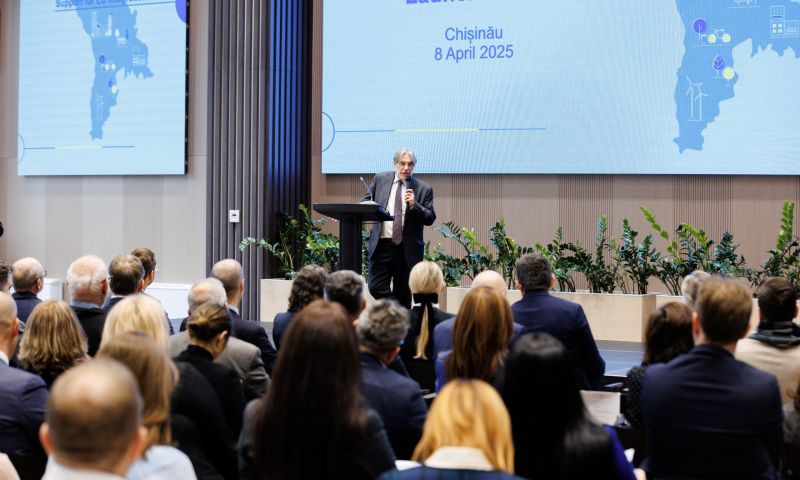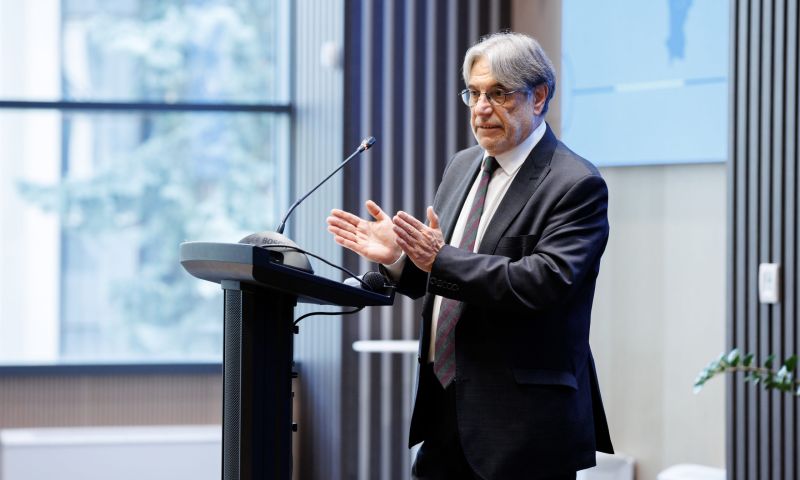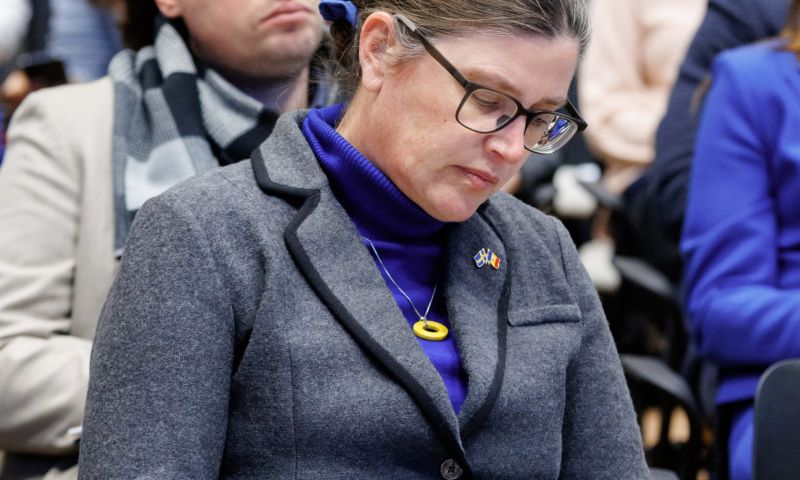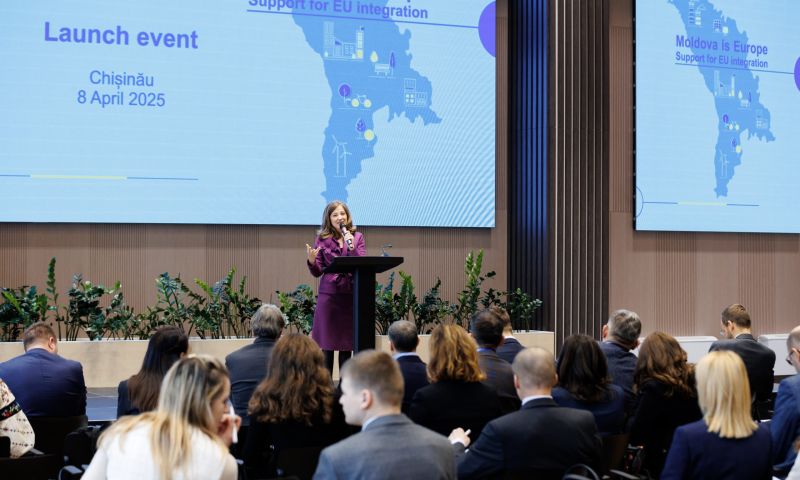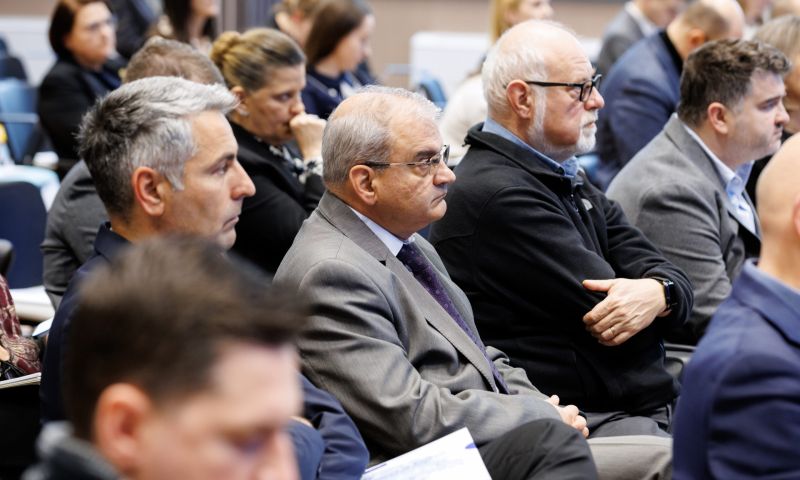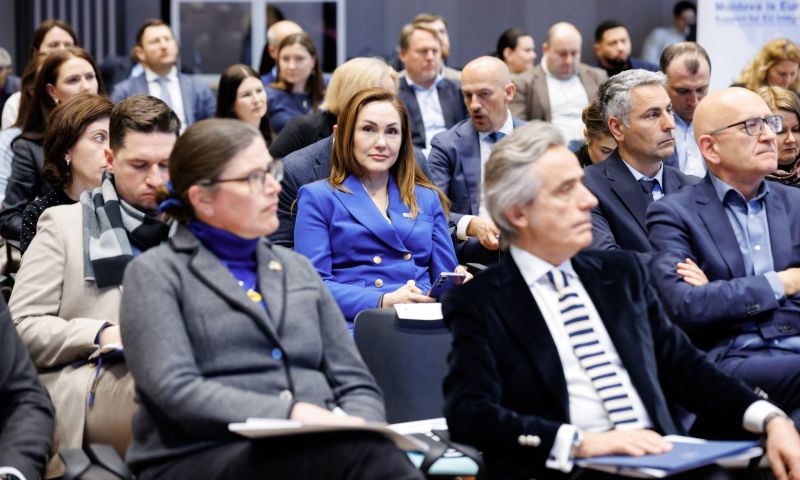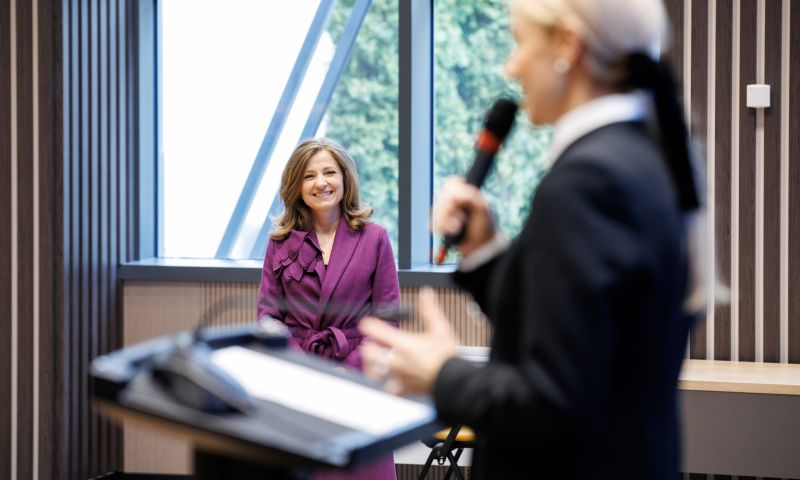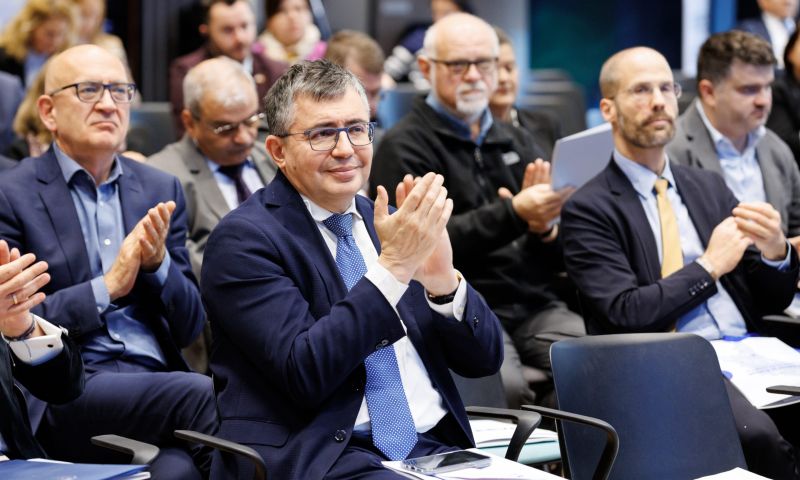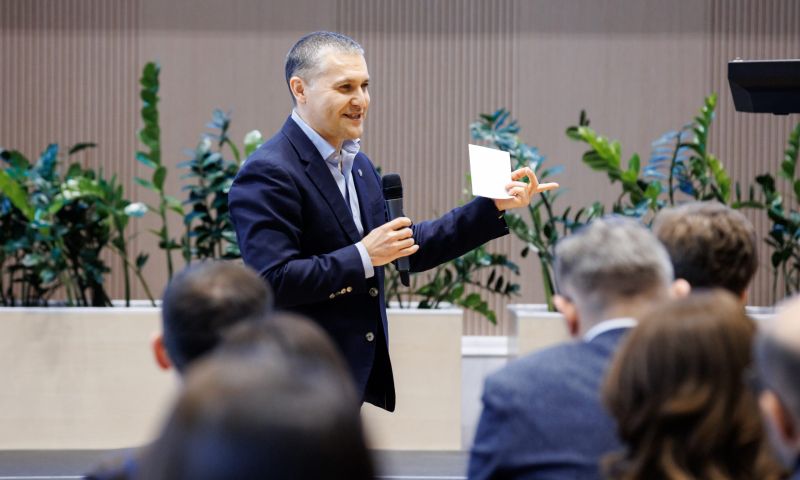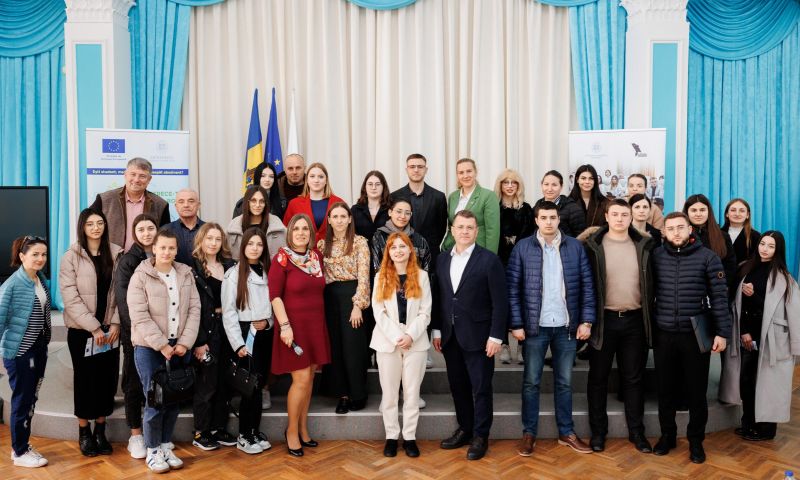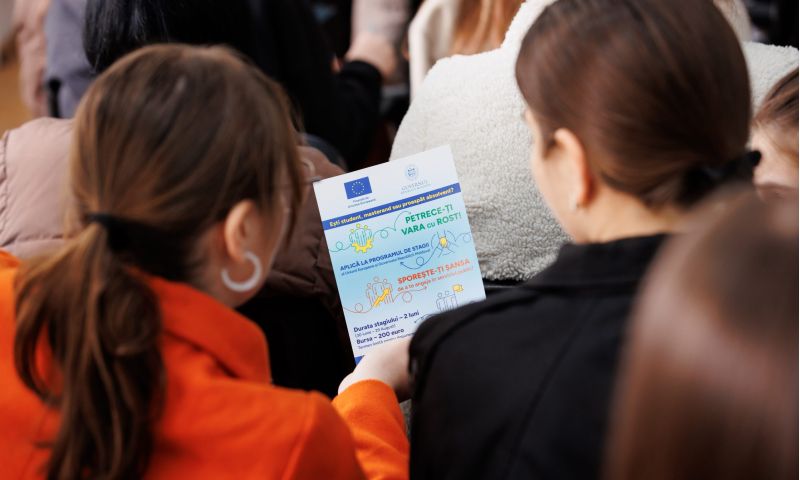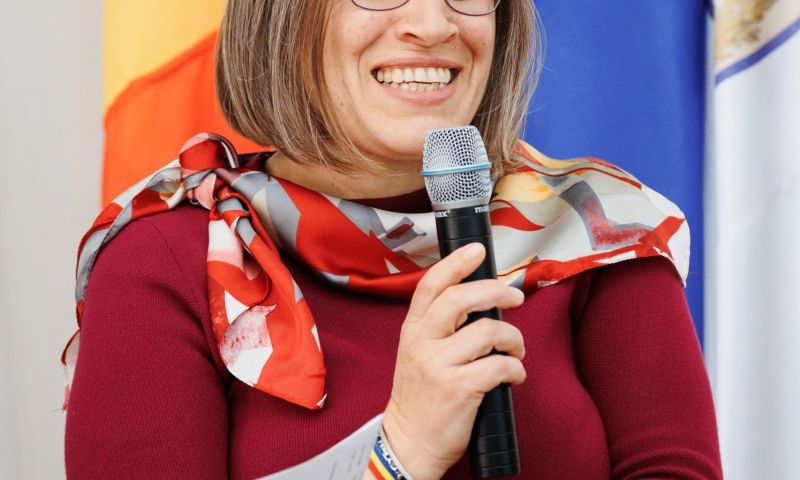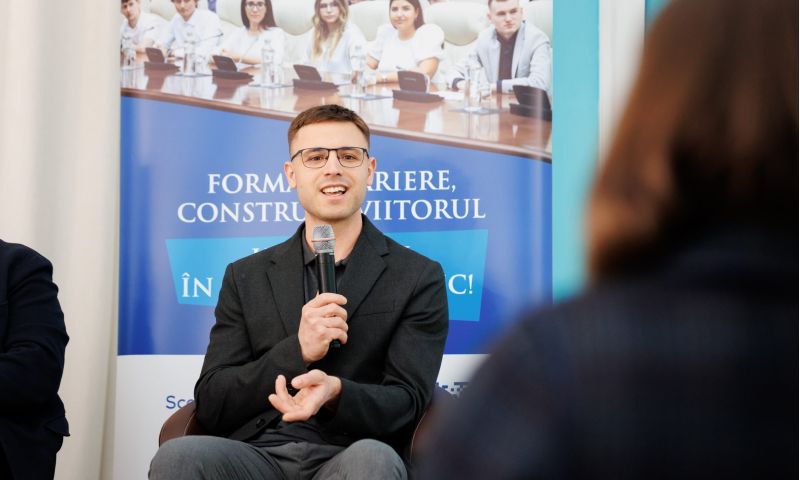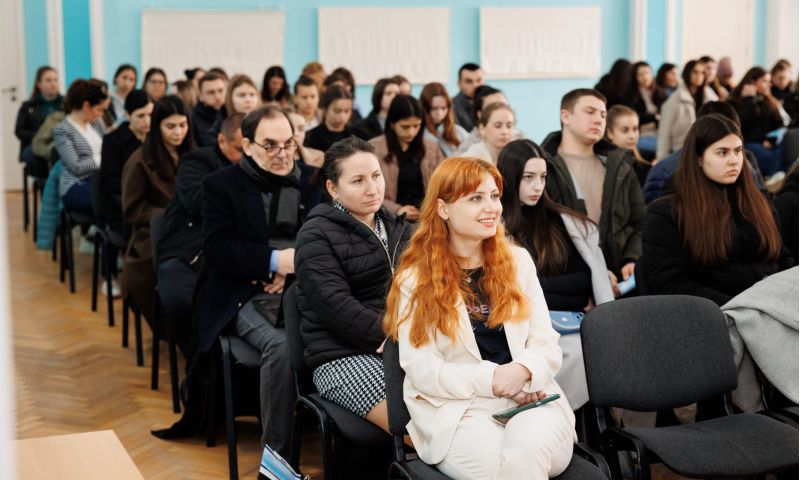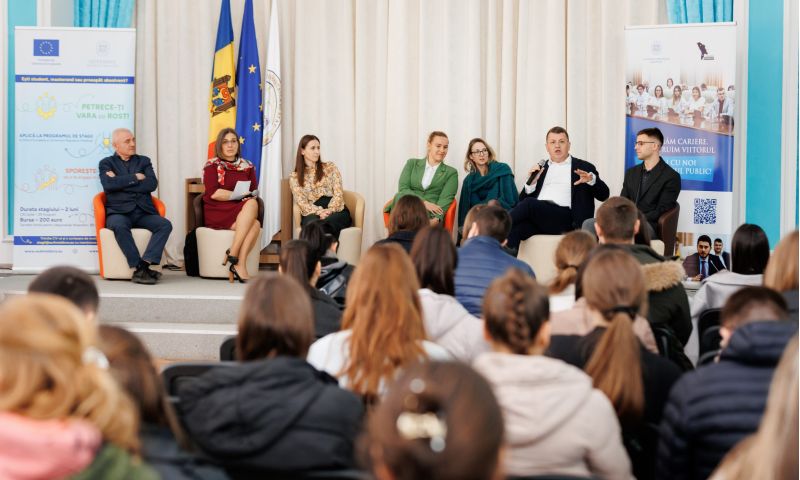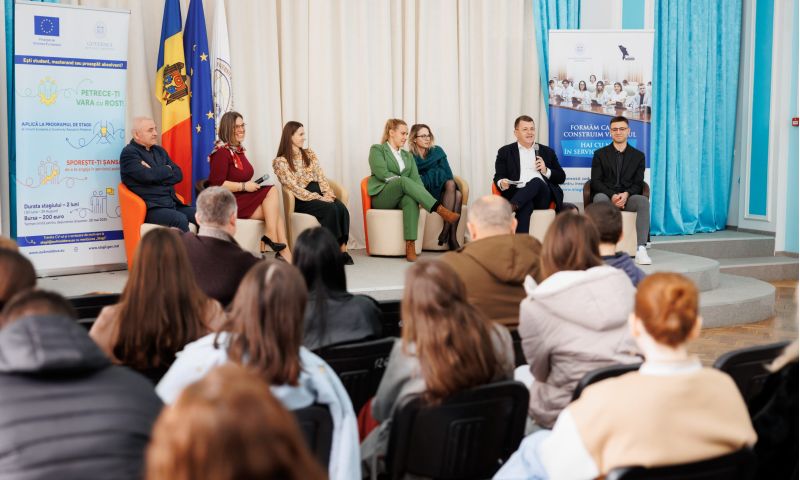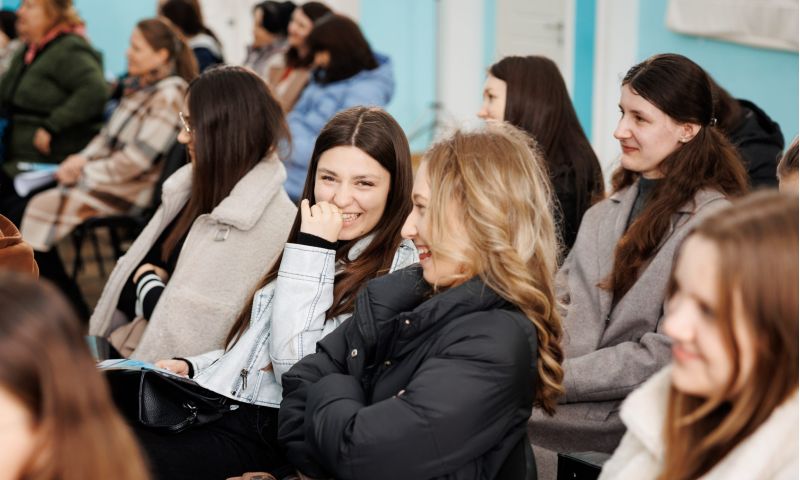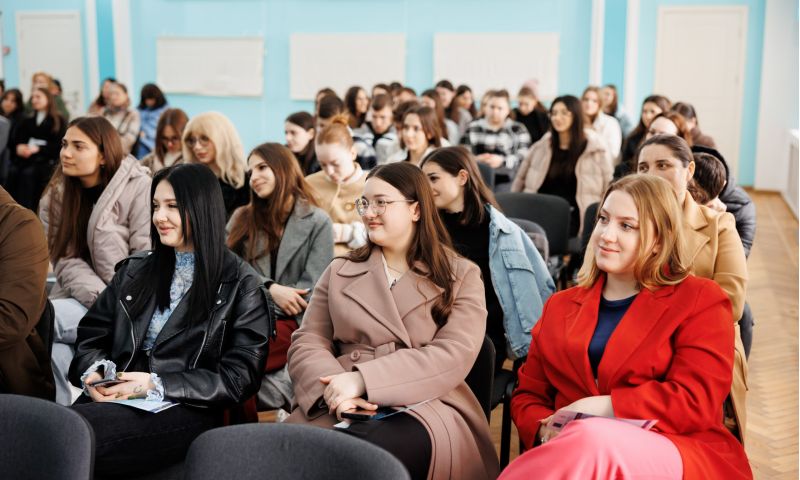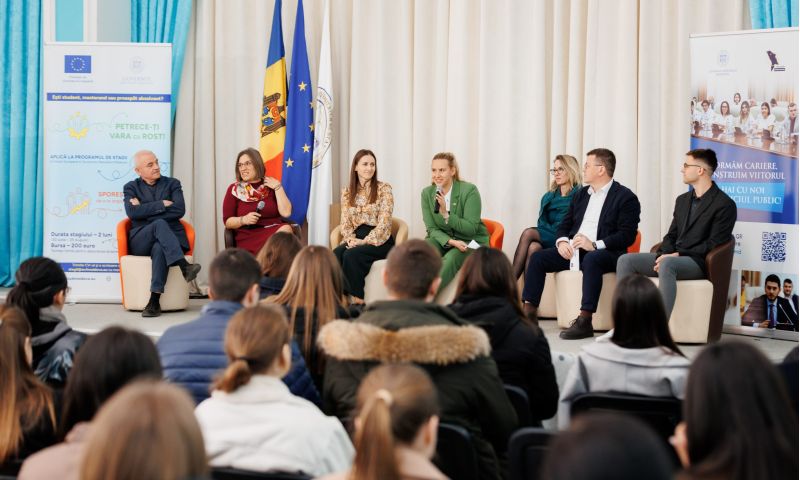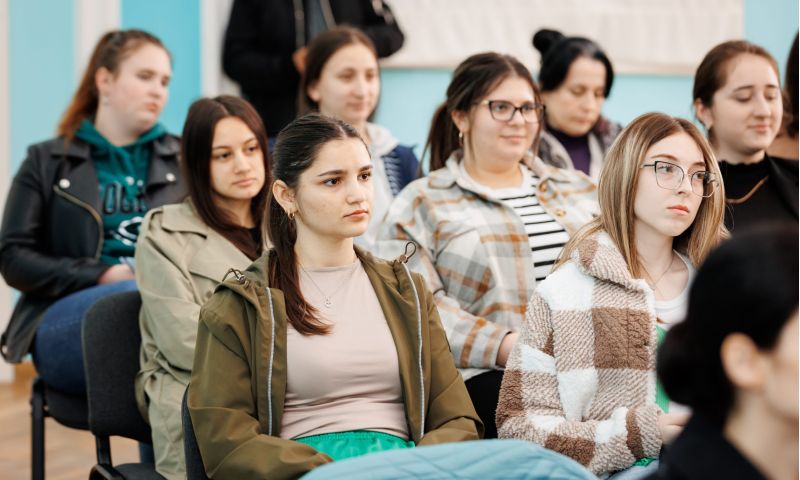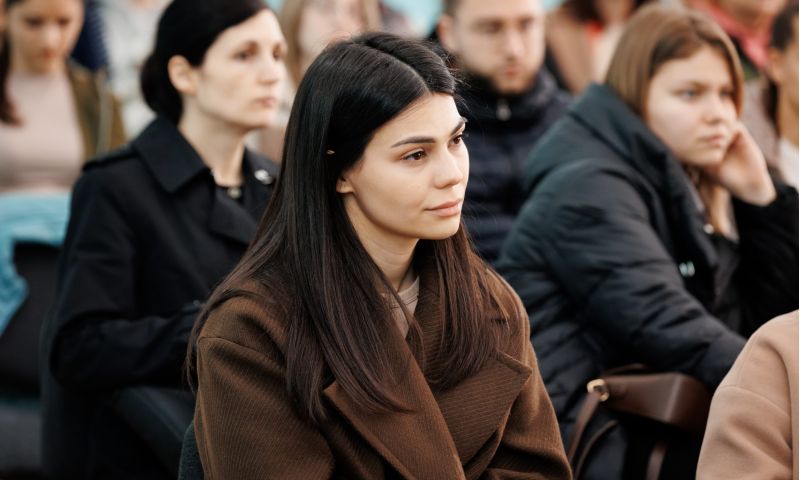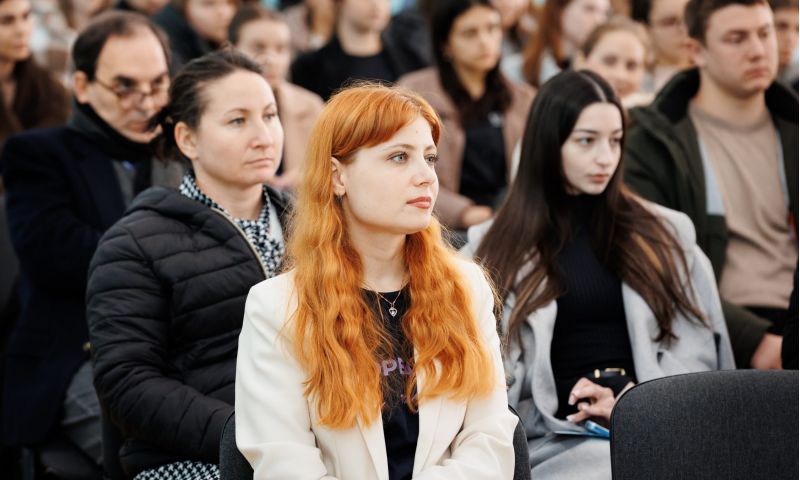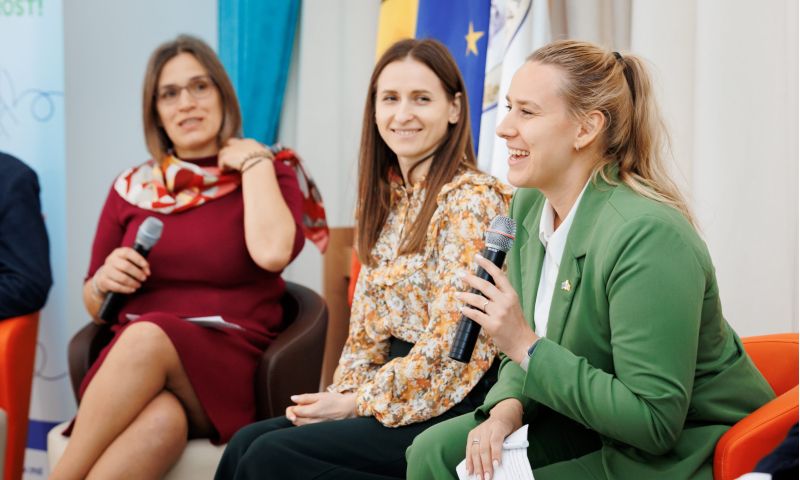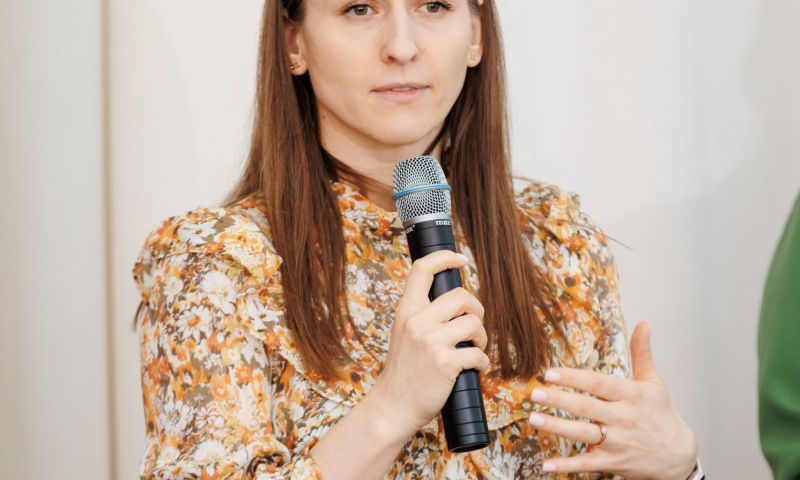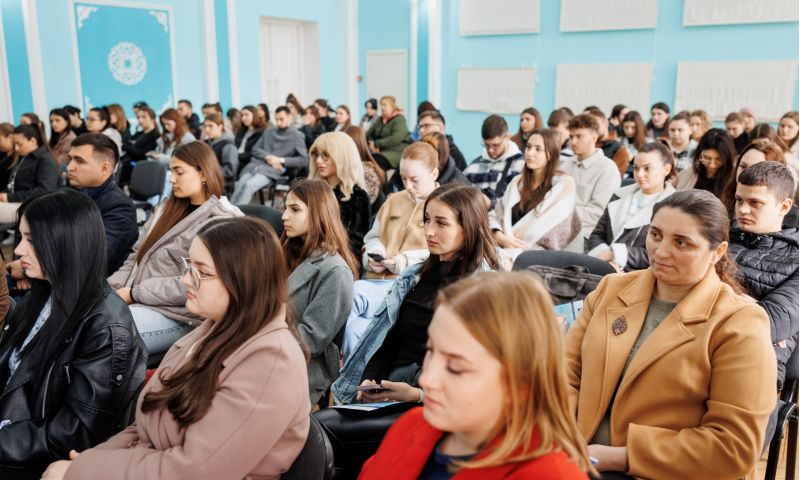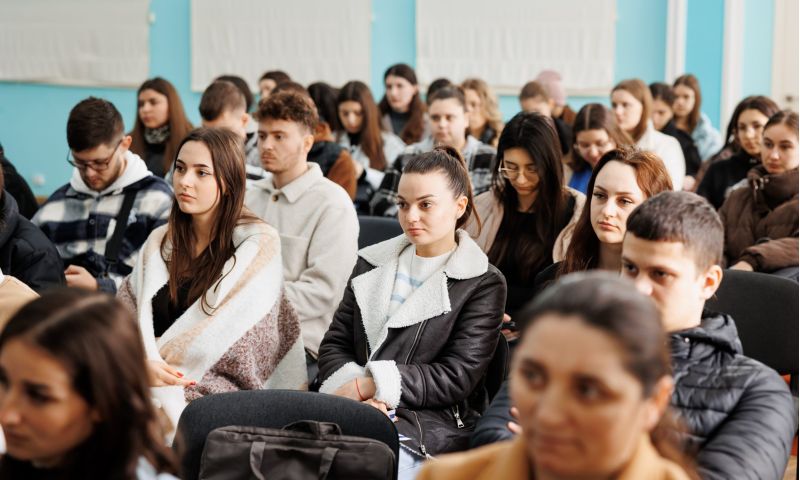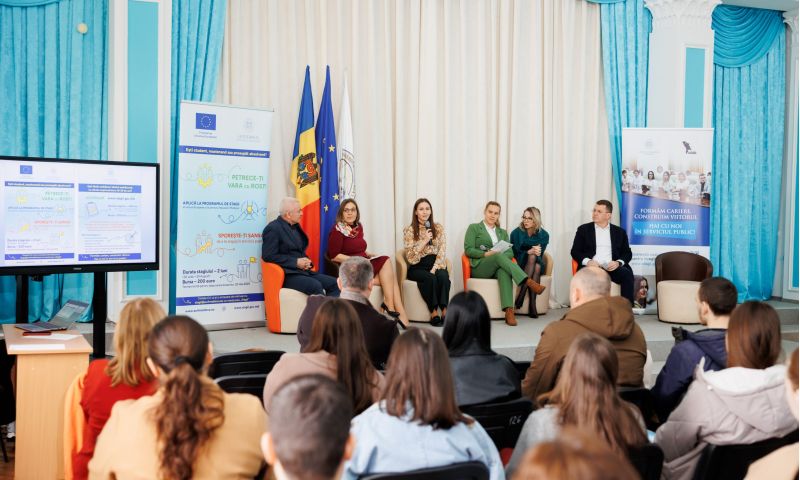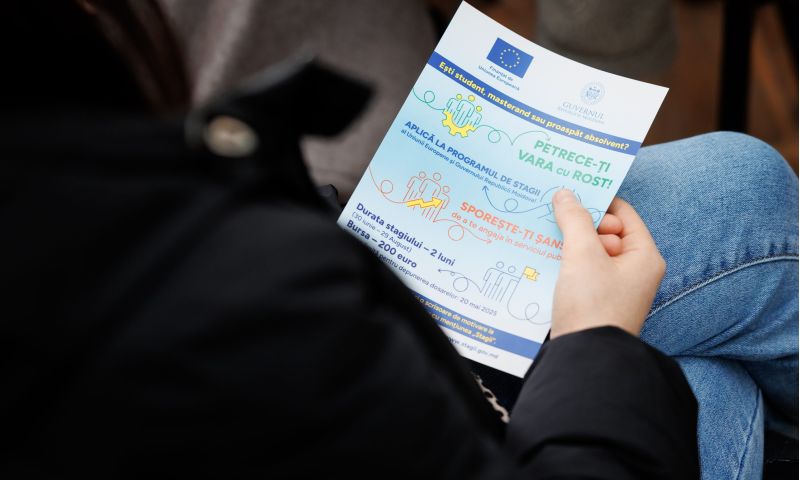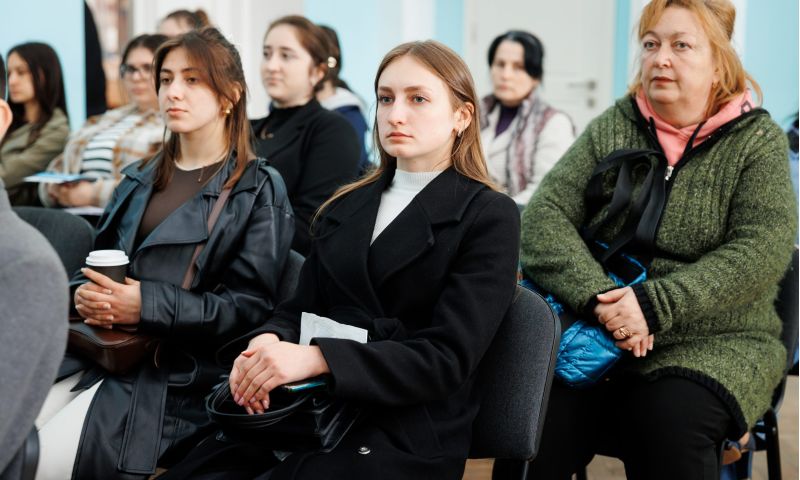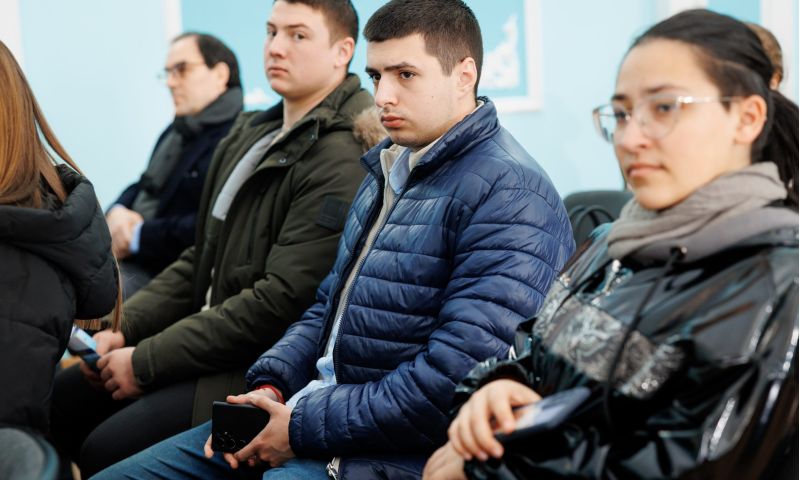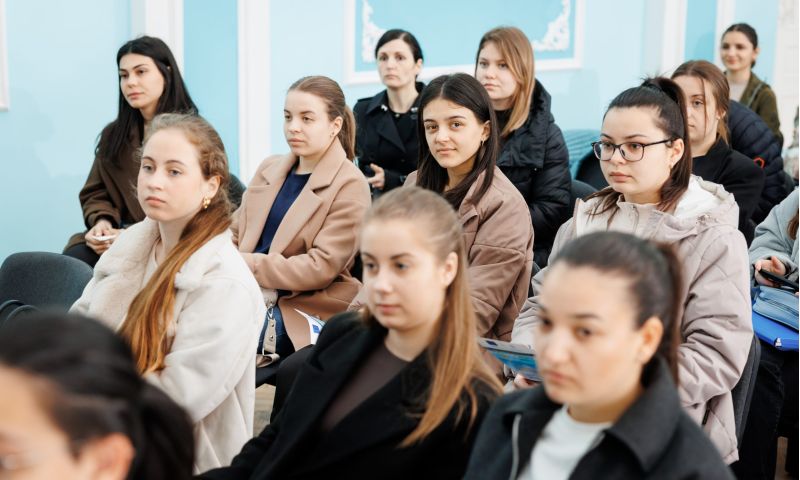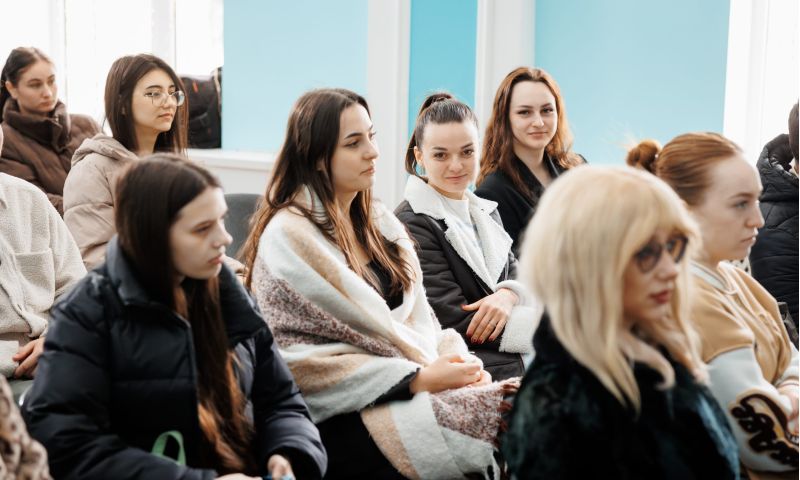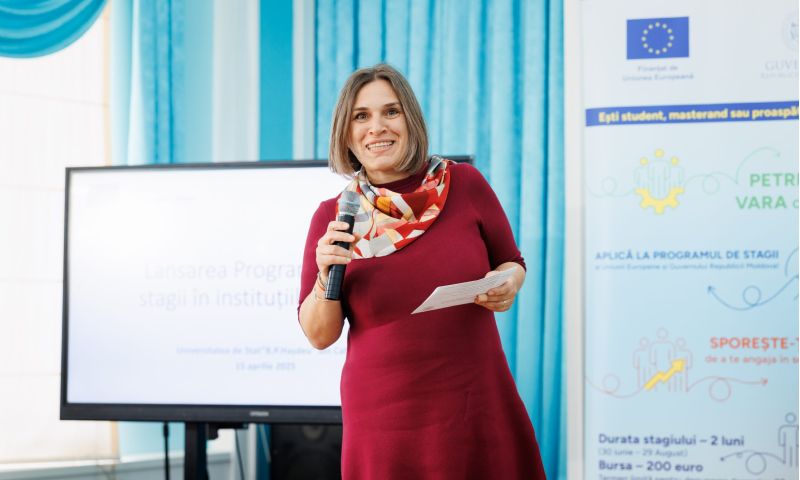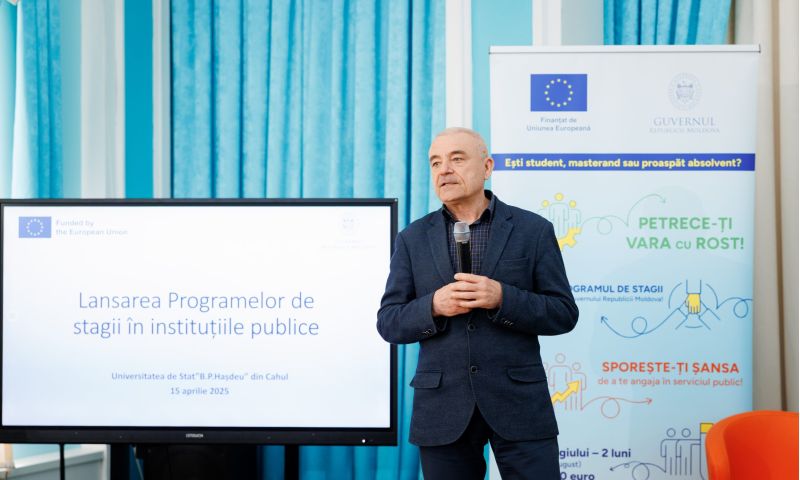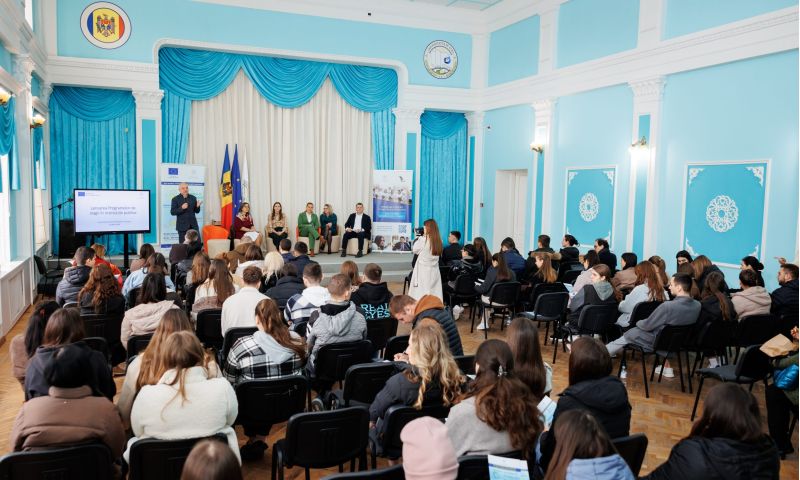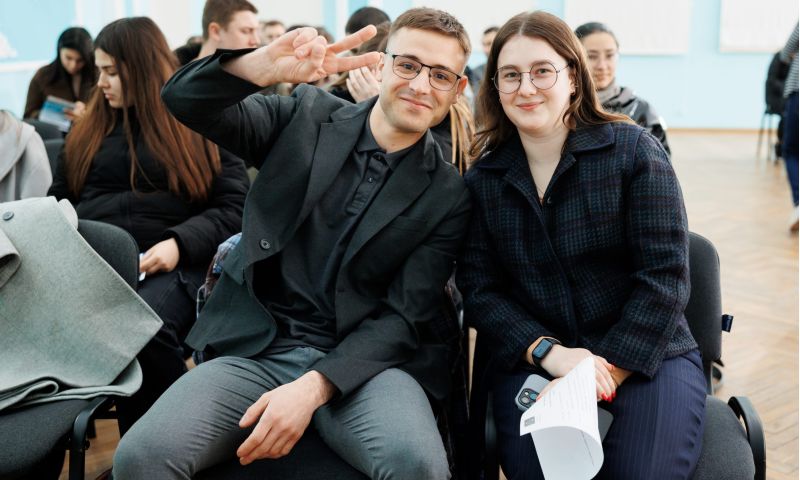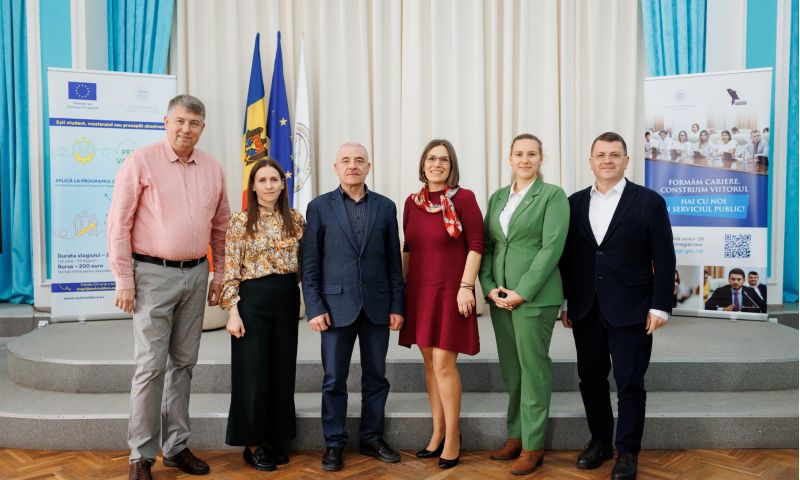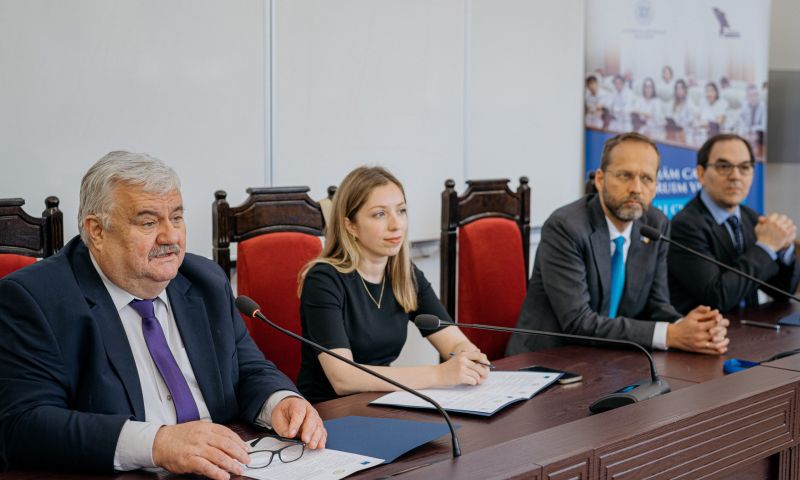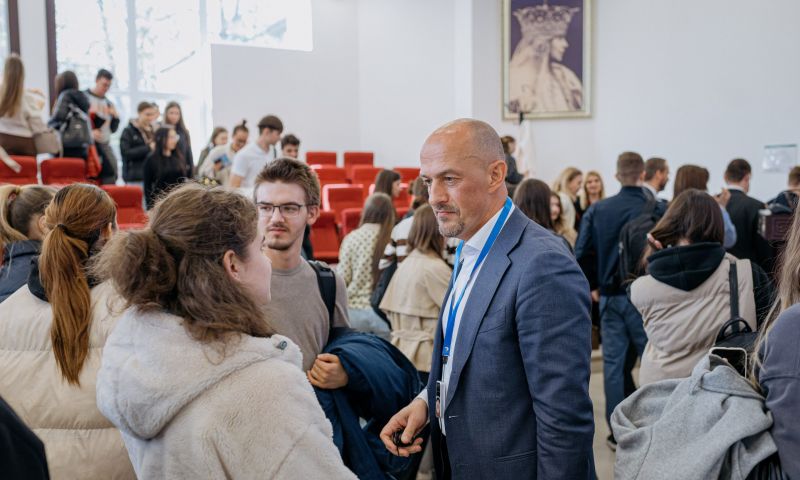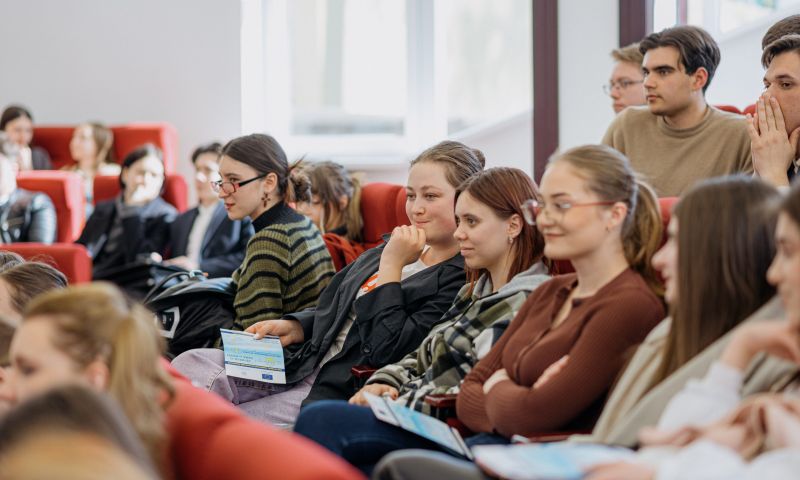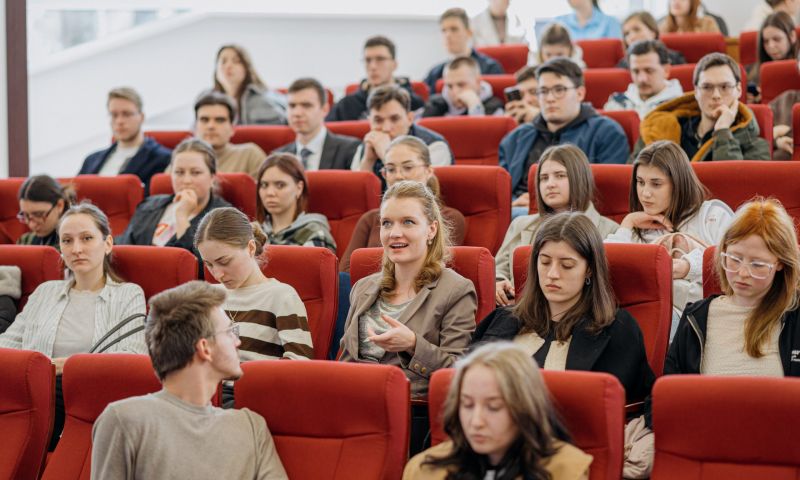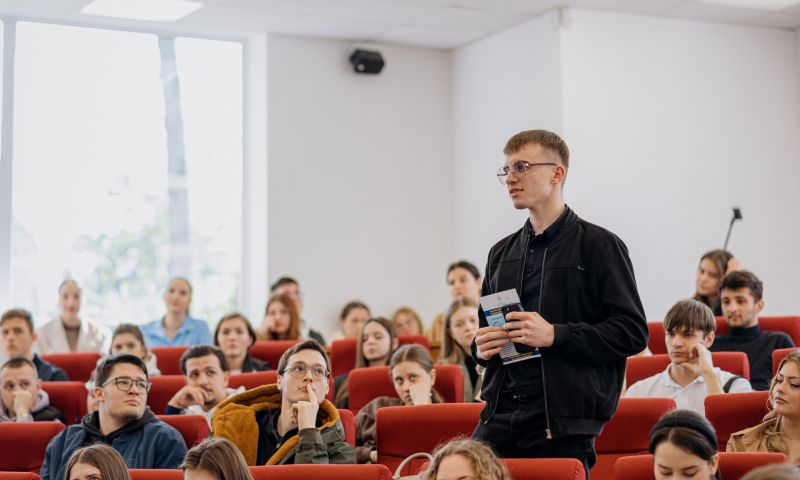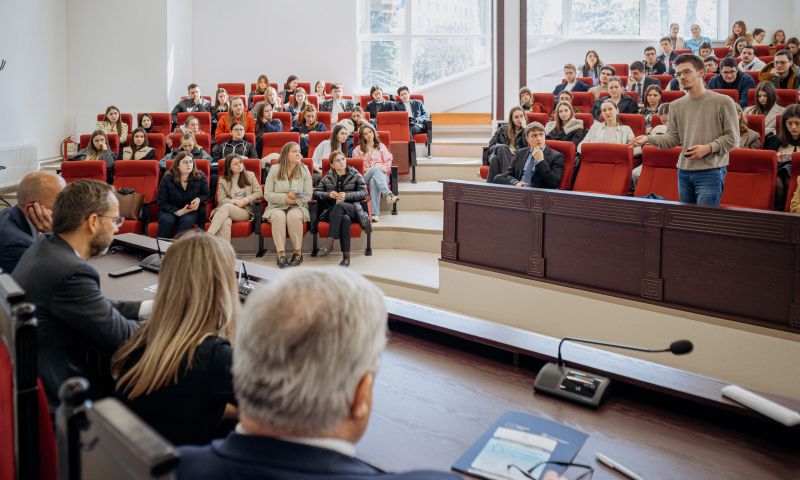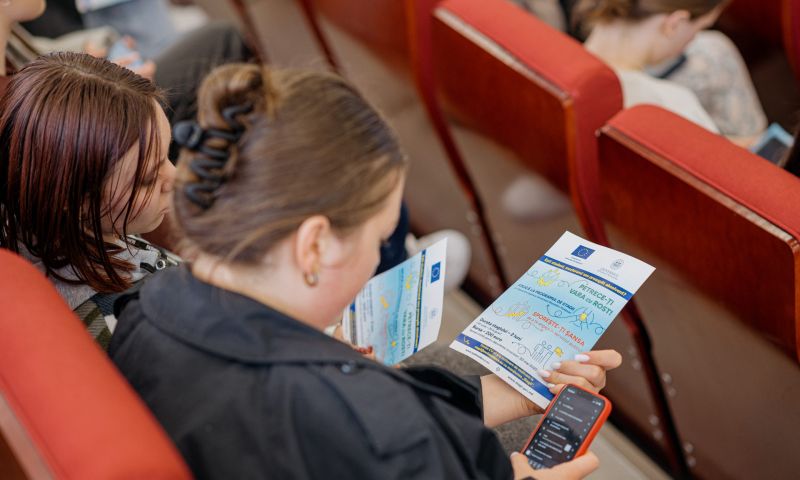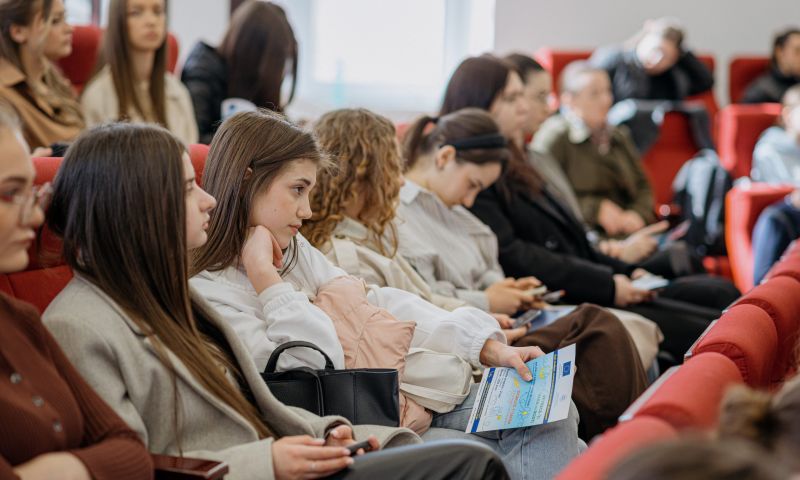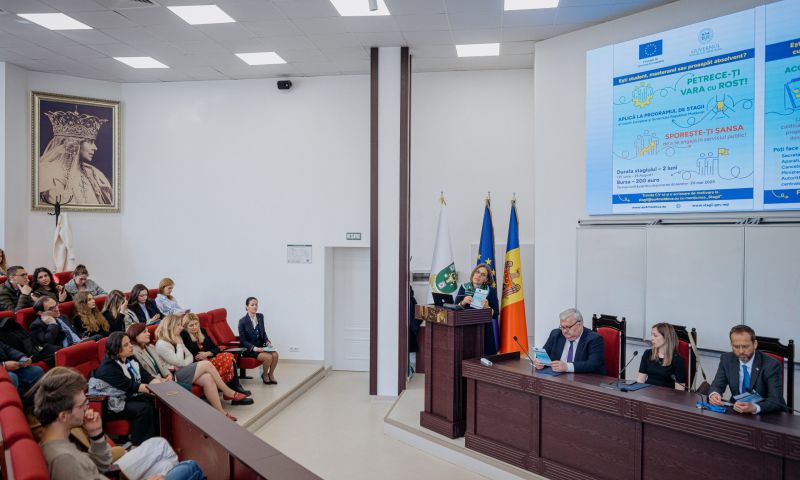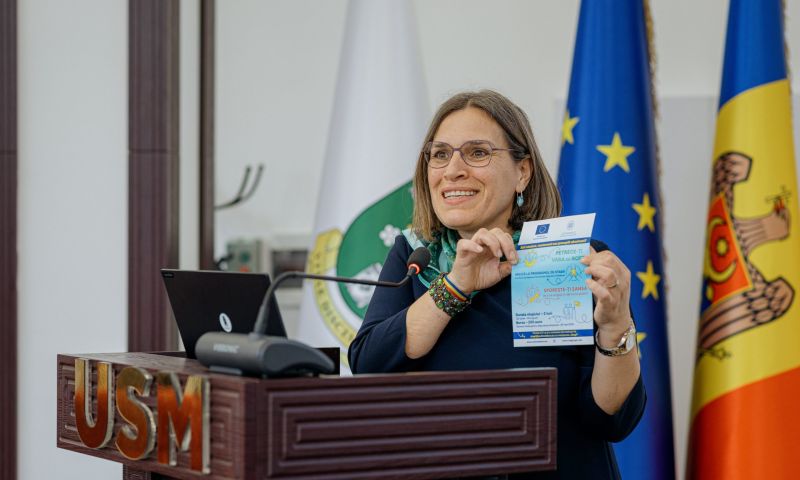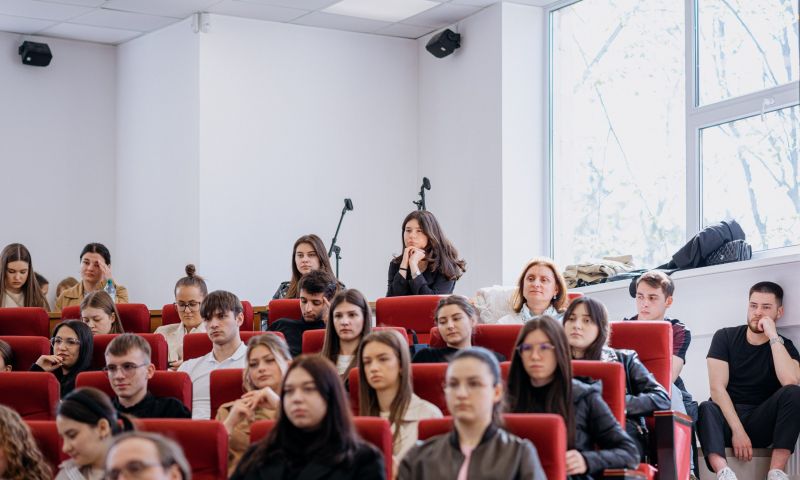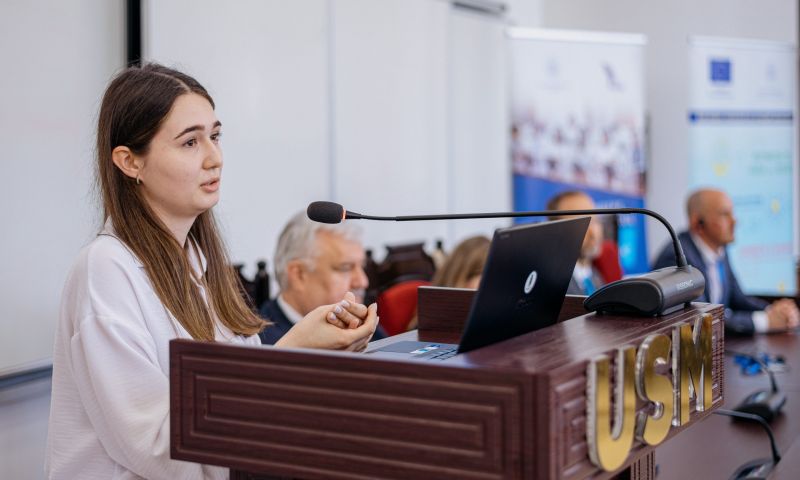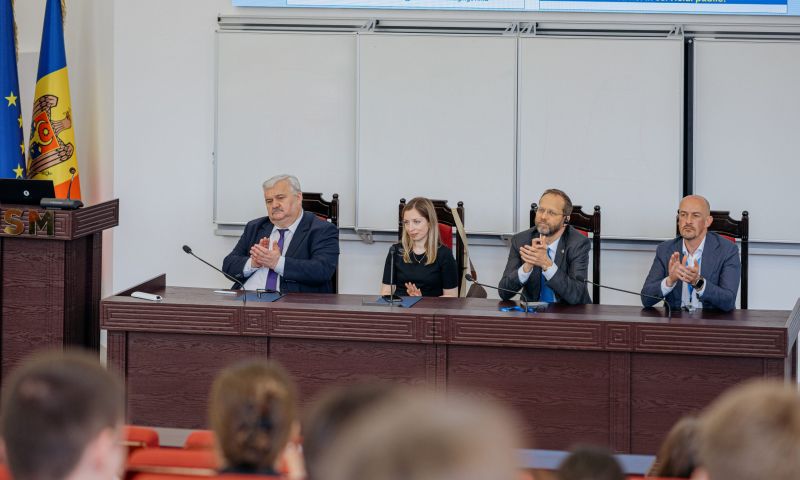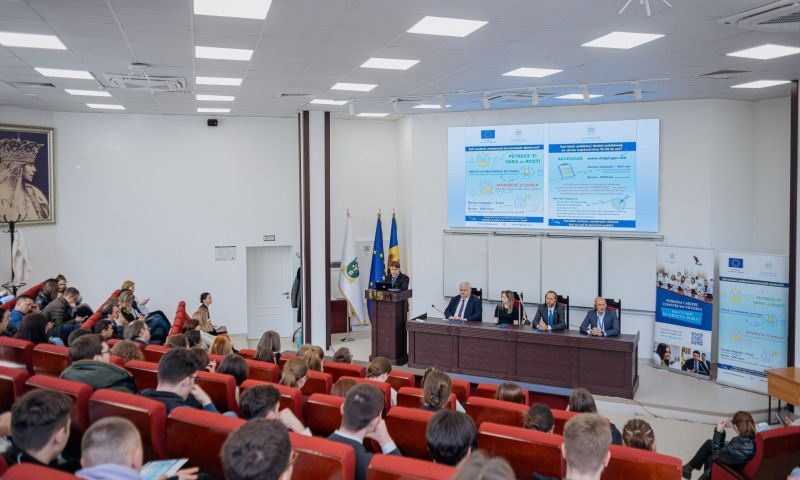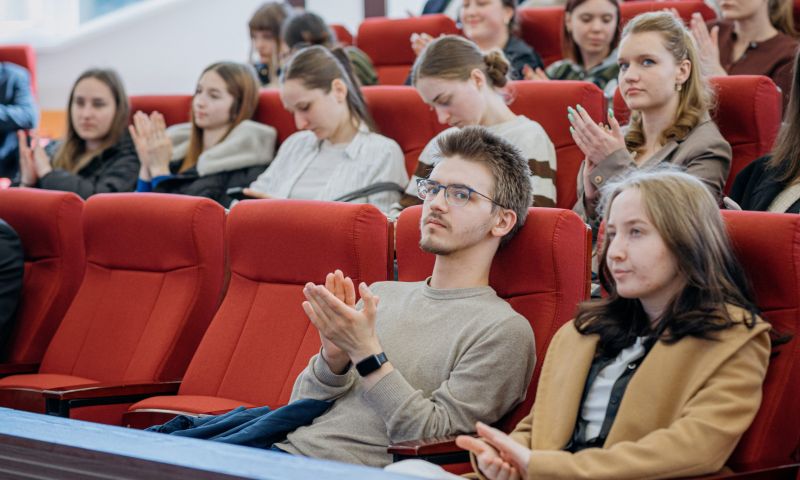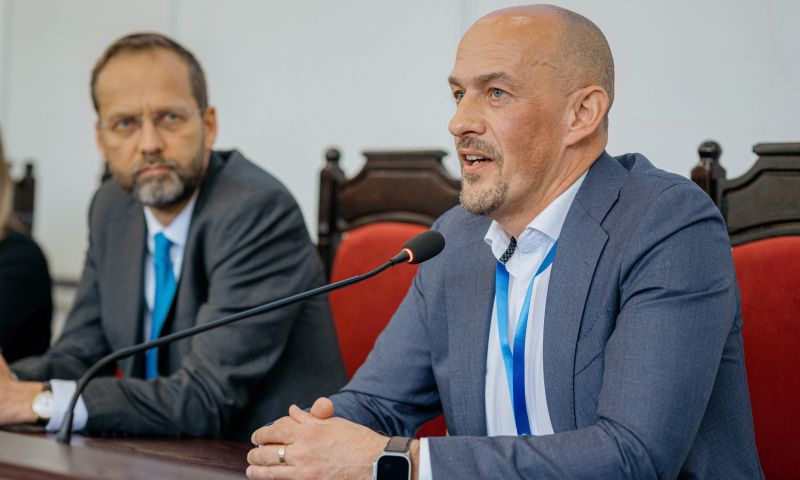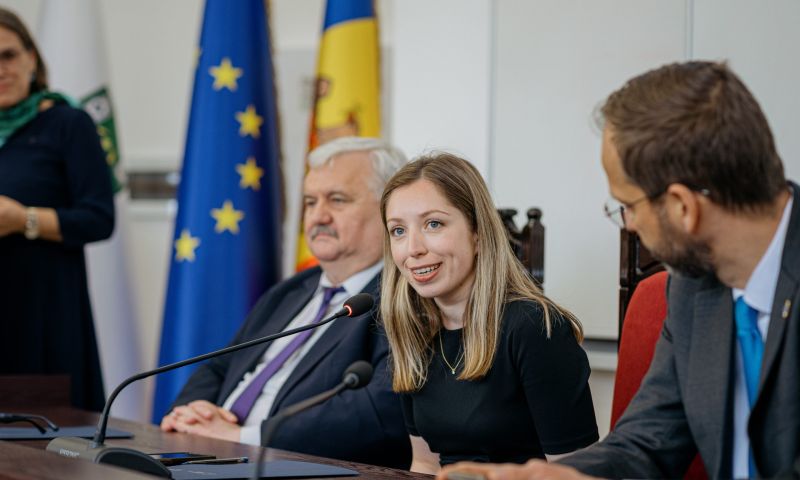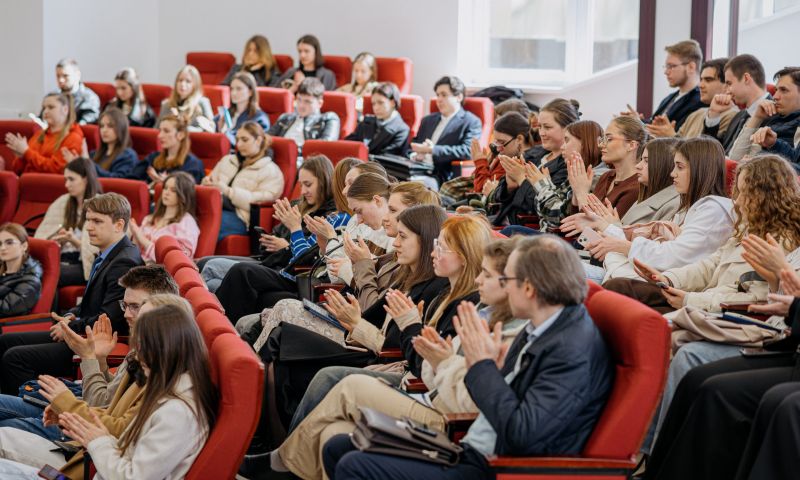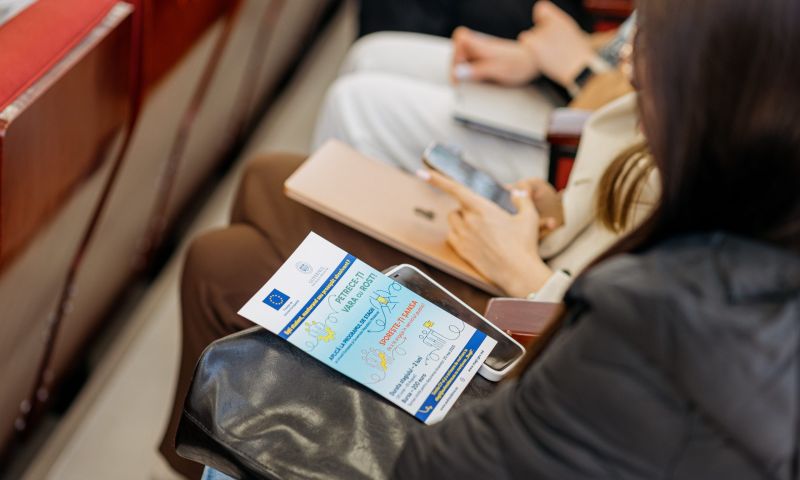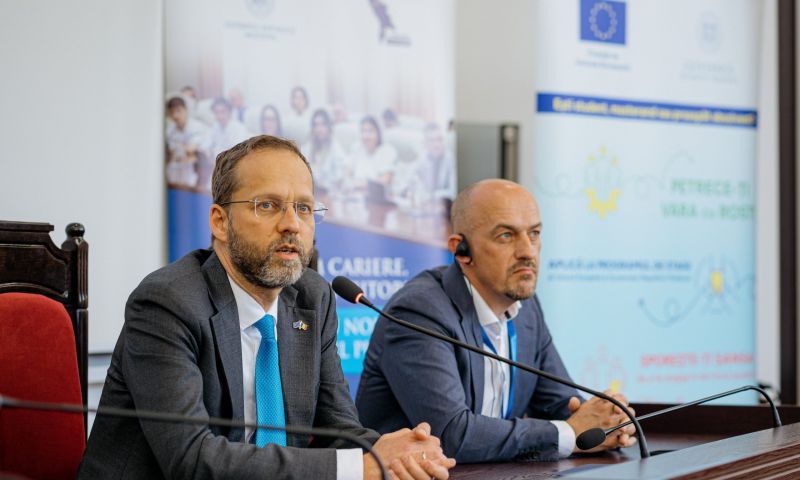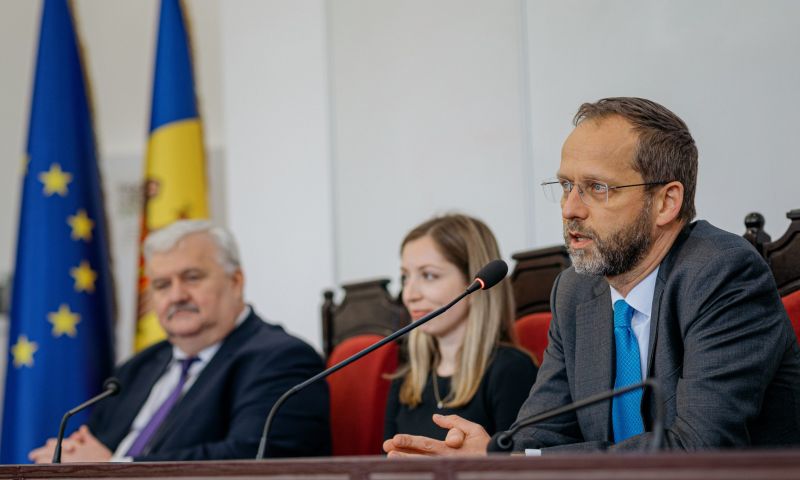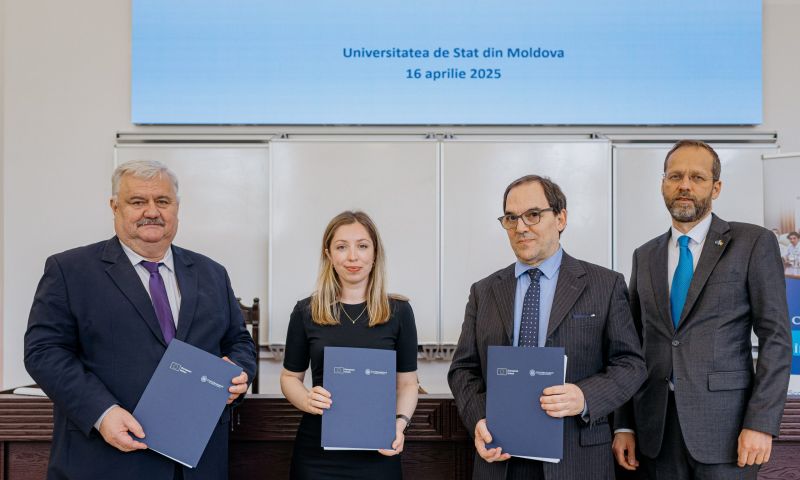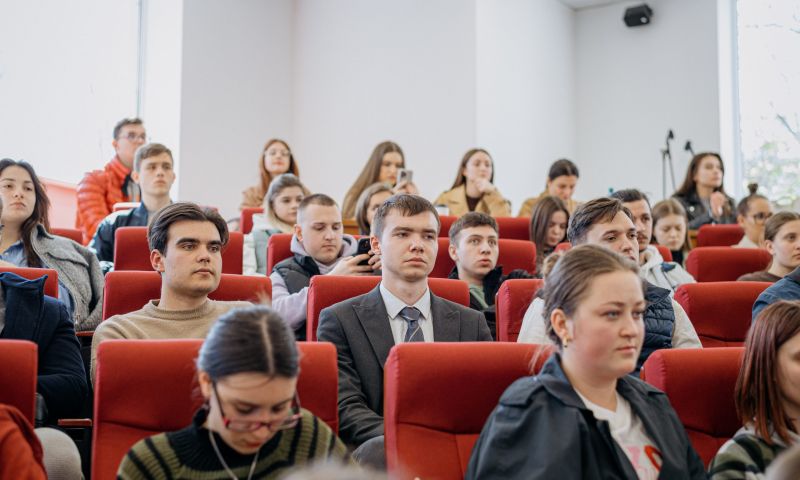Moldova este Europa –
Sprijin pentru
EU integrarea în UE
Acest proiect are ca obiectiv consolidarea capacității instituționale a administrației publice din Republica Moldova, furnizând expertiza și instrumentele necesare pentru implementarea reformelor, îmbunătățirea guvernanței și alinierea la standardele Uniunii Europene.
Având la bază inițiativele anterioare ale UE, proiectul va sprijini instituțiile-cheie în îmbunătățirea procesului de elaborare a politicilor și a planificării strategice, contribuind, în același timp, la creșterea rezilienței economice și a eficienței administrative a Republicii Moldova.
- Un element esențial al proiectului îl constituie angajarea Înalților Consilieri UE, care vor oferi asistență tehnică durabilă autorităților administrației centrale, facilitând transpunerea acquis-ului UE și implementarea reformelor esențiale.
- În paralel, proiectul va include inițiative specifice de consolidare a capacităților instituționale și furnizarea de expertiză tehnică pentru a spori eficiența administrației publice.
- Totodată, va fi lansat un program de stagii destinat studenților și tinerilor absolvenți, având ca scop formarea unei noi generații de profesioniști calificați și asigurarea sustenabilității pe termen lung a administrației publice din Republica Moldova.
ECHIPA PROIECTULUI
Field: Anti-Money Laundering and Assets Recovery and Management
Institution: Office for Prevention and Fight against Money Laundering
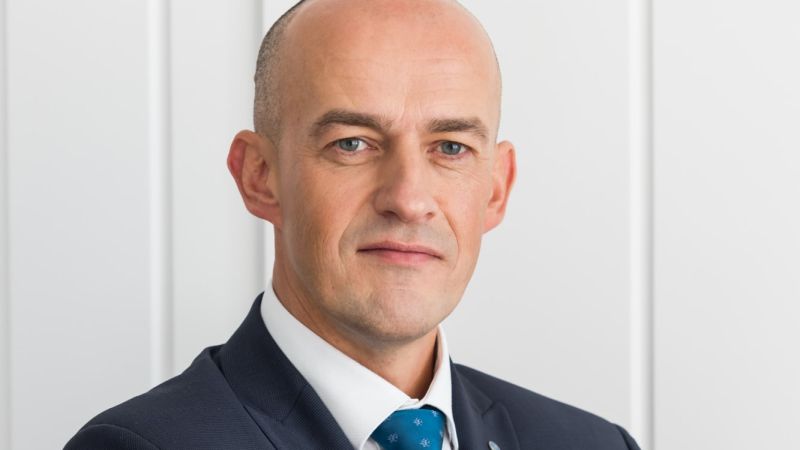
Žydrūnas Bartkus has accumulated extensive experience at both the national and international level in organizing and implementing anti-corruption and money laundering strategies, creating and improving asset recovery and management systems, promoting inter-institutional and international cooperation. Until 2023 year, Žydrūnas Bartkus worked as the director of the Lithuanian Special Investigation Service, and was also elected and held the position of President of the European Partners Against Corruption (EPAC/EACN), a network uniting over a hundred institutions from almost 40 European countries.
Country: Lithuania
Field: Agri-Food Sector Development
Institution: Ministry of Agriculture and Food Industry
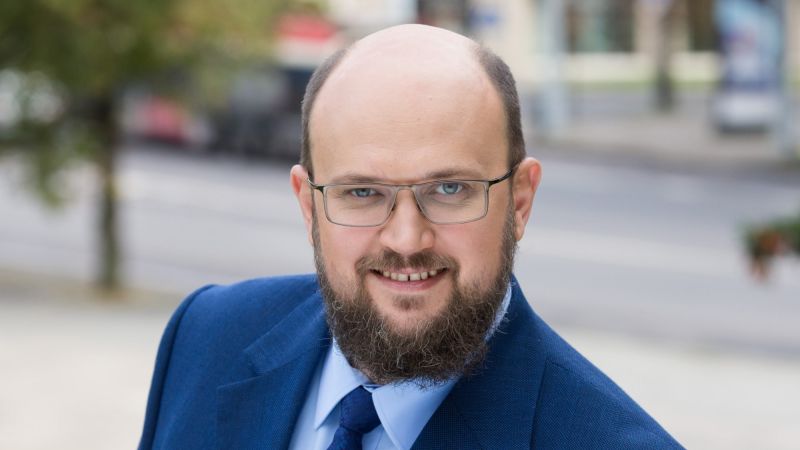
An accomplished legal professional with a transnational and European focus, bringing over 21 years of extensive experience to the table. With two decades spent in prominent roles within the civil service’s agri-food sector in the Republic of Lithuania, Rolandas has excelled in positions such as Head of Unit, Deputy Director, Director, Chair, Chief Advisor, and Deputy Minister.
His journey began with pivotal contributions to Lithuania’s accession to the EU, where he played a direct role in legal responsibilities related to agri-food chapters of the Accession Treaty. Rolandas was instrumental in establishing a coordination model and actively represented national interests in legislative processes, both at the EU Council and its working parties, as well as the European Commission’s working fora, including comitology committees. His involvement extended to shaping various roles in all subsequent Common Agricultural Policy (CAP) reforms, commencing with Commissioner Fischler’s reform in 2003.
During Lithuania’s EU Presidency in 2013, Rolandas chaired the EU Council’s Special Committee on Agriculture (SCA). In this capacity, he led negotiations and finalized the first-ever CAP reform under co-decision with the European Parliament, covering the period 2014-2020. His leadership extended to managing other major agri-food legislative dossiers at the time.
Possessing firsthand experience of the last two decades of evolving CAP, including its challenges, opportunities, and interactions with other EU policies such as the recent EU’s Green Deal, Rolandas is well-equipped to offer insights and tailored advice to meet the evolving needs of beneficiaries. His direct involvement in various activities and actions of the Lithuanian government and the Ministry of Agriculture related to economic diplomacy and the promotion of intra and extra EU trade of national agri-food production further enhances his value to the project’s goals, including support for fulfilling commitments under the Association Agreement (AA) and the Deep and Comprehensive Free Trade Area (DCFTA).
Country: Romania
Field: Financial Services
Institution: National Bank of Moldova
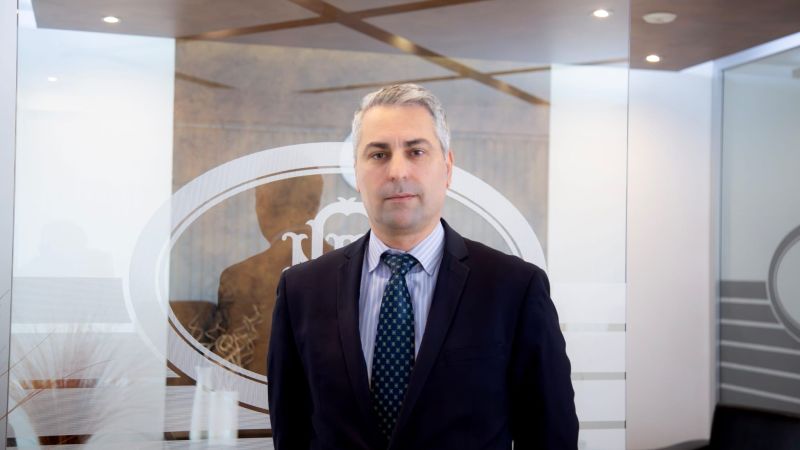
Country: Romania
Field: Justice and Prosecution
Institution: Ministry of Justice, Prosecutor General’s Office
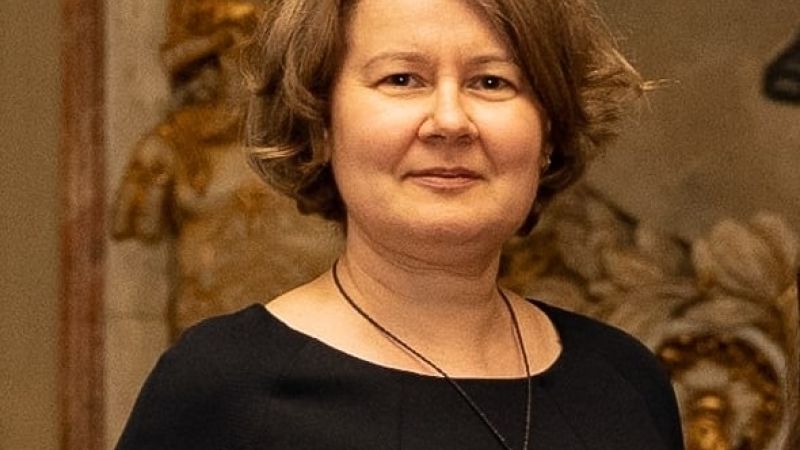
Gabriela Scutea achieved a 27-years long career for the Prosecutor’s Office in Romania (Public Ministry) and was appointed General Prosecutor from Febr 2020 to Febr 2023. In addition to the managerial positions within the Public Ministry (2006-2013 deputy General Prosecutor, and chief or deputy prosecutor within territorial offices in Brasov County), she gained experience within the central administration, serving for the RO Ministry of Justice in 2016 as state secretary. In her high-level prosecutor capacity, Gabriela took active part in meetings of the CCPE (Council of Europe format) and the Consultative Forum (EU Member States format).
Between 2013-2016, she acted within the Permanent Representation of Romania to the EU, covering the field of Justice, including the specific instrument for RO Cooperation and Verification Mechanism (benchmarks on the independence and efficiency of the judiciary, and fighting corruption).
Country: Romania
Field: Reforms coordination
Institution: Prime-Minister’s Office
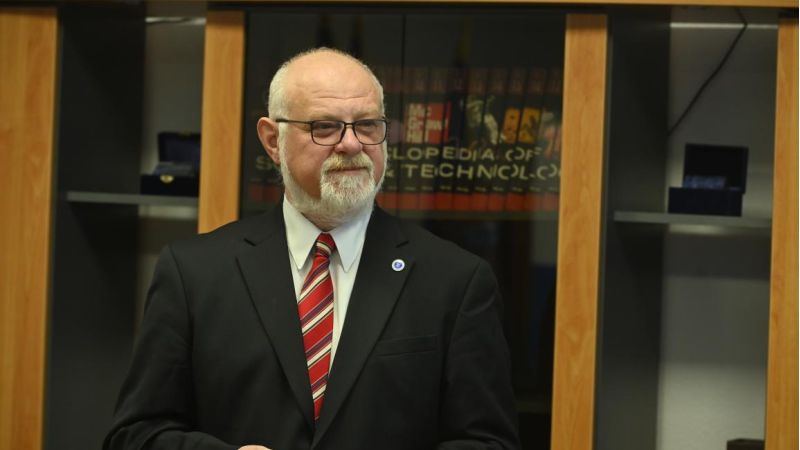
Prof. Dragoş Mihael Ciuparu is a chemical engineer by training with a Ph.D. from the University of Paris 7 “Denis Diderot”. He spent almost 7 years with the Department of Chemical Engineering at Yale University, first as a post-doctoral fellow, and later as Research Scientist. At the end of 2005 he returned to the Petroleum – Gas University of Ploieşti, Romania, establishing a new research group and obtaining the title of professor.
Prof. Ciuparu has published over 70 peer reviewed papers, coauthored 3 technical books, and holds 5 US patents. Prof. Ciuparu’s involvement in public administration and policymaking started as a member of the Presidential Commission for Education and Research Policy, widely credited with contributing to the jumpstart of the sectoral reform process in Romania, and of the National Council for Scientific Research. Between 2010 and 2012 he was President of the National Authority for Scientific Research, managing all policymaking and competitive research funding programs in Romania. Starting with January 2020 he was appointed Secretary of State for research within Ministry of Education and Research, and from June to September 2021, he was Secretary of State for research within the Ministry of Research, Innovation and Digitalization.
Country: Romania
Field: Internal Security Affairs
Institution: Ministry of Internal Affairs
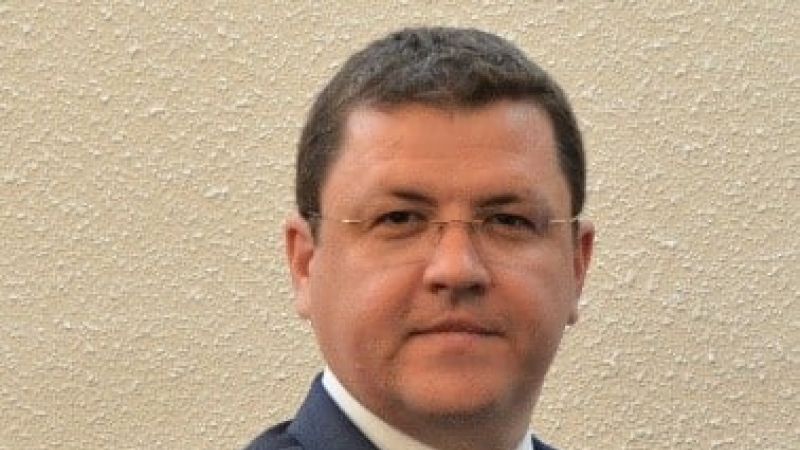
Romanian police quaestor with over 21 years of experience starting as crime investigation officer, analyst, and manager of intelligence analysis and witness protection units for 14 years and First Deputy of the General Inspector of Romanian Police.
Extensive expertise in capacity building, product, and process design aimed at increasing the safety and security of citizens whilst maximizing institutional efficiency, accountability, and responsibility.
International proficiency as policy contributor and strategy developer acting in various capacities at European level:
• chair of Standing Committee on Internal Security (COSI) within the Council of EU
• head of delegation for the Law Enforcement Working Party with the Council of EU
• project manager, component leader and expert of Twinning, Research and Innovation and Cohesion Funds
Country: Germany
Field: Strategic Coordination and European Affairs
Institution: Presidential Administration

Martin Sieg has served as an advisor to German and international governmental and nongovernmental organizations. Most recently he was Director of the Konrad-Adenauer-Stiftung in Romania and the Republic of Moldova from 2017-2021. Sieg holds doctorates in history and political science and has taught security policy, European integration, and EU foreign relations at the Universität Frankfurt/Oder, Freie Universität Berlin, and Universität Passau.
Country: Lithuania
Field: Environment and Green Transition
Institution: Ministry of Environment
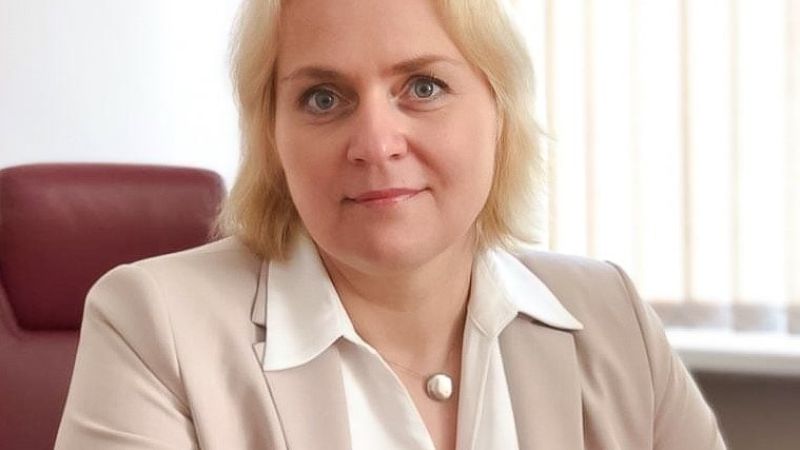
Justina Grigaravičienė has about 20 years of experience in the field of environment, having held senior managerial positions in the Ministry of Environment of Lithuania, the most recent one being Deputy Minister of Environment. She has also been Adviser to the Committee of environmental protection of the Parliament of the Republic of Lithuania; and adviser to the Deputy Chairman of the Lithuanian Parliament.
In the Republic of Moldova, Justina will provide policy advice to Ministry of Environment to mainstream and integrate environmental and climate targets and considerations into all key economic policies; will review relevant strategic policy documents, provide policy recommendation and guidance on the implementation of the EU-Moldova AA with particular focus on the elements stemming from the European Green Deal.
Ms Grigaravičienė has a Master’s Degree in Public Administration and a Bachelor’s Degree in Sociology.
Country: Romania
Field: Local Public Administration Reform
Institution: Prime Minister’s Office
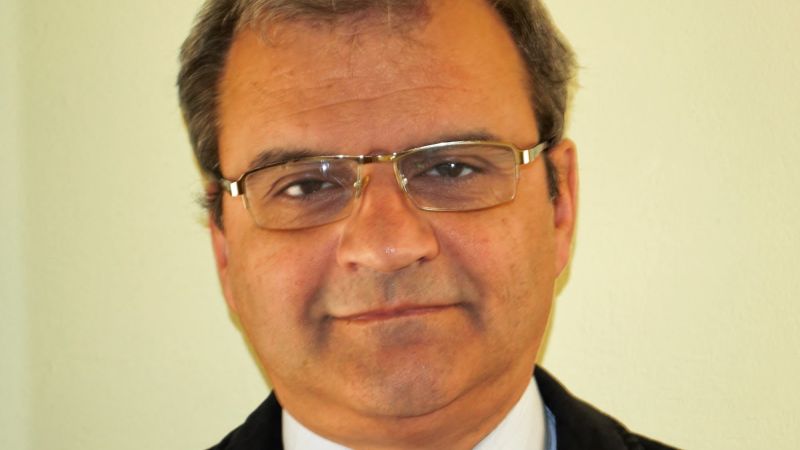
With a BS and MS in macro-economics 1986, Department of Planning and Economic Cybernetics – Academy of Economic Studies, Bucharest, Victor has more than 21 years of experience as top manager in Romanian central and local public administration and as international expert. He was municipal counsellor (1992-2000 and 2004) and deputy mayor (1996-2000) in Romanian local government. At central level Victor Giosan was State Secretary in General Secretariat of Romanian Government (2005-2009), coordinating the system of policy making and strategic planning and State Adviser of the Prime Minister (2016) in charge of the public administration reform. As international consultant he worked in Romania (1998-2017) in different areas as: intergovernmental fiscal system, developing the local government institutional capacity, municipal service management; functional reviews of central institutions, strategic planning; public investment management – long term resident adviser of World Bank in Ministry of Public Finance. Outside Romania he worked in Albania (2002), Serbia (2003-2011), Bosnia Herzegovina (2004), Kosovo (2006-2007 and 2009), Tajikistan (2012), Moldova (2010-2015 and 2017) in different areas: decentralization strategy, fiscal decentralization and intergovernmental transfer design, decentralization of social services, functional reviews of CoG, strategic planning in projects funded by DfID, USAID, European Commission, UNDP/UNICEF, Council of Europe, World Bank.
Country: Romania
Field: Energy
Institution: Ministry of Economy and Infrastructure
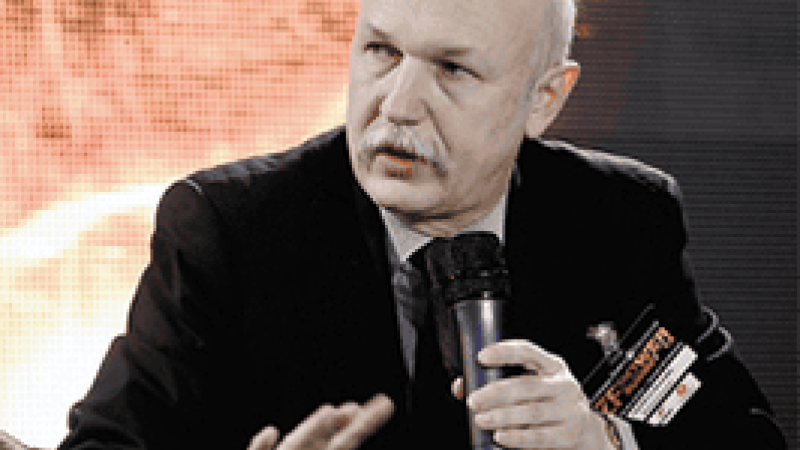
Mr. Sandulescu obtained his MsC in Energy, at Bucharest Technical University. He also holds a PhD in Energy Markets and studied utility regulation at University of Gainesville Florida and Sherbrooke University Montreal. Before joining the European Union High Level Advisers’ Mission to the Republic of Moldova, Mr. Sandulescu was Director General for energy in the Romanian Ministry of Economy, Director General in the Romanian Energy Regulatory Authority, researcher and programme director in ICEMENRG, a national energy engineering and research institute.
His current assignment in Ministry of Economy and Infrastructure includes policy advice in creating a competitive energy market by transposing EU energy acquis, in increasing energy security of supply by promoting the gas and electricity interconnections with EU networks, in development of a sustainable energy sector by increasing the use of renewable energy sources and energy efficiency projects.
Team Leader
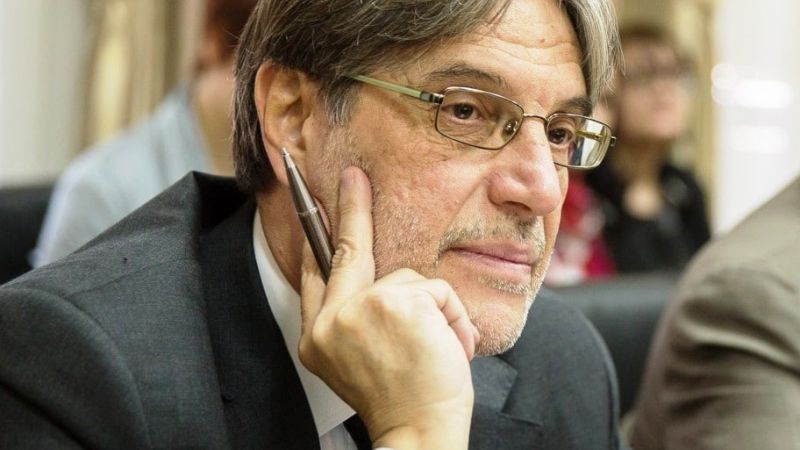
Pavlos Kollias is a senior Economist with extensive, multi-sectoral professional experience of over 35 years in programming, strategic planning, programme- and project formulation and management and in coordinating multi-disciplinary, multinational teams in the context of various capacity building programmes/projects in the areas of Regional and Local Economic Development, Cross-Border/Transnational & Interregional Cooperation, Public Administration Reform, Organisational & Human Resources Development, Employment/Labour Market and Social policies, Vocational Education & Training, Business- and SME Development.
Working internationally in the last 23+ years as Team Leader/Senior Expert in the context of a large number of EU funded (PHARE, ISPA, SAPARD, CARDS, IPA, European Neighbourhood Instrument, NDICI) projects in 14 EU candidate or associated countries in Central & Eastern Europe, the Balkans and the Neighbourhood/EaP Region; Additional experience as Institutional Management Specialist for the World Bank in the Middle East:
An extensive international consulting career committed to assessing and improving governance structures at central, regional and local levels, supporting the formulation of National and Sectoral Programmes and designing National and Sectoral/Regional Development strategies and policies, providing technical assistance and institutional capacity building support to the public administration, Central Ministries and Sectoral/Regional Agencies performing functions entrusted to Managing, Paying Authorities and/or Intermediate Bodies in EU pre-accession countries and/or supporting them during the post-accession stages, assisting the Governments of associated countries of the EU Neighbourhood in implementing their EU Association Agreements for strengthening their administrative capacities, designing/managing the partnership building process, drafting/implementing the National Development Strategies and Programmes, Regional Development Plans and Sectoral/Regional Operational Programmes, integrating the national sectoral/regional strategic priorities with the regions’ own policy objectives, utilising their endogenous potential and comparative advantages to enhance regional and local competitiveness, and developing their respective project pipelines.
Finance Manager

Finance Manager

Communication and Events Manager
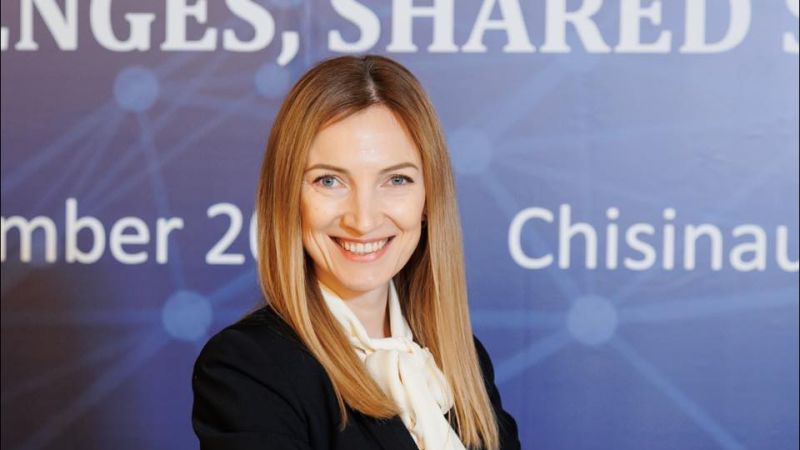
With a Master’s Degree in International Relations, Iana has 14 years of professional experience in strategic communication, being the lead of several large-scale awareness raising campaigns including at national level, high-level events, development and maintenance of public institutions’ and development partners’ web sites, development of numerous information and visibility products.
She started her career as a journalist, and since 2009 has been working for several international development partners’ projects in Moldova, among which UN, World Bank, UNDP, EU, being in charge of communication & awareness raising campaigns in fields like central public administration reform, human rights and gender equality, development aid coordination, youth policies. In 2014, Iana joined the EU High Level Advisers’ Mission as Communication Expert, and since then has been responsible for the overall coordination of communication activities of the project. She also holds a degree in English and German philology.
Junior Non-Key Expert/Assistant of the EU High Level Adviser on Public Administration Reform
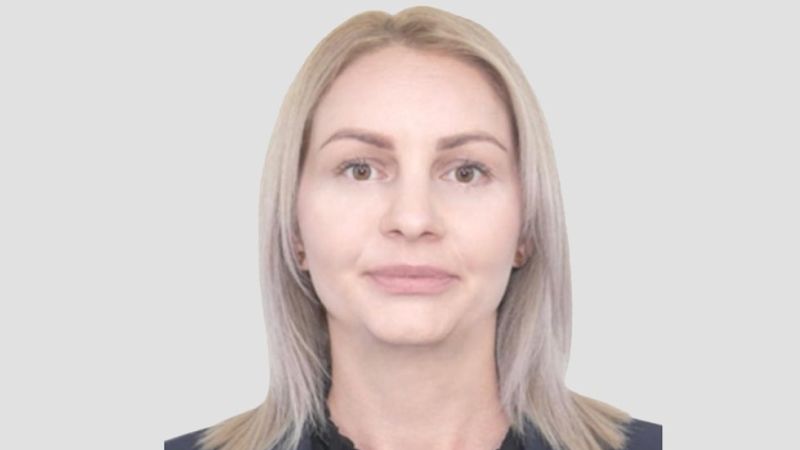
Olesea has a background in Law and Foreign Languages and holds two post-graduate degrees – in Public Administration and in EU International Relations and Diplomacy Studies. She has cumulatively 8 years of experience both in EU-funded projects and in public sector, offering support in administration, communication and visibility aspects, as well as in translation and interpretation.
In recent projects Olesea has worked on improving the electoral practices in Moldova at the Council of Europe Office in Chisinau and at the OSCE Office for Democratic Institutions and Human Rights, and to implementation of a twinning project dedicated to financial sector in Moldova, where she provided aside logistical support to management team, as well contributions to monitoring and reporting on project activities. Over the years Olesea acquired solid knowledge of project management processes.
Junior Non-Key Expert/ Assistant of the EU High Level Adviser on Financial Services
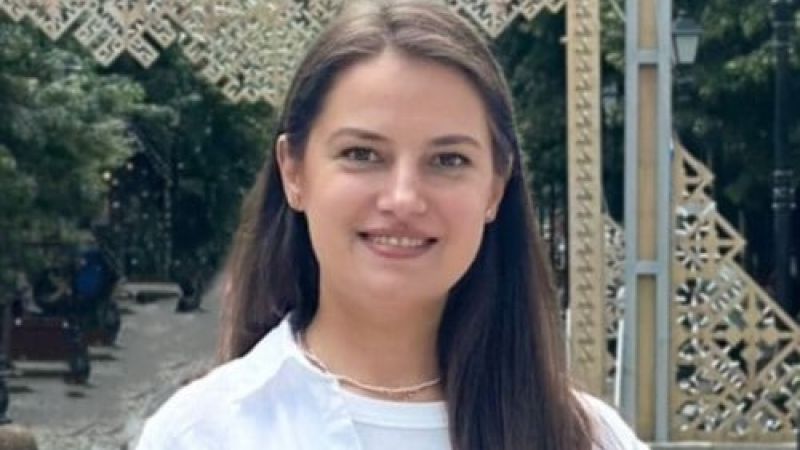
Ana has over 12 years of professional experience, having worked with both government institutions and international organizations. She holds two master’s degrees in Economics and International Relations.
Throughout her career, Ana has taken on roles within various ministries, where she participated in the adjustment of national legal frameworks to align with EU acquis, contributed to the development of ministerial, intergovernmental, and international agreements, and overseeing their implementation. Her expertise includes project management, financial oversight, and building strategic relationships with stakeholders, delivering key project outcomes while ensuring compliance with donor regulations.
Prior to joining the EU High Level Advisers’ Mission Project team, Ana worked for the EU funded Twinning projects, latest in the “Strengthening supervision, corporate governance and risk management in the financial sector”, aimed to support the National Bank of Moldova in carrying out reforms related to enhance supervision, corporate governance, and risk management in the financial sector.
Fluent in Romanian and English, she has completed specialized training in international politics, integrity, and diplomatic communication at several EU institutions.
Junior Non Key Expert/Assistant of the EU High Level Adviser on Agri-food Sector Development
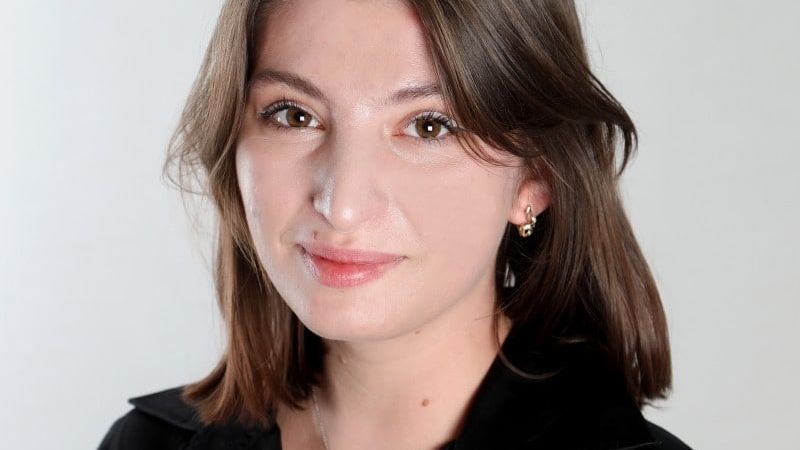
Cătălina possesses a strong background in assisting with the implementation of environmental programmes and projects, especially in the renewable energy field. This has allowed her to acquire significant project management expertise and a thorough understanding of the United Nations Sustainable Development Goals, particularly those pertaining to environmental sustainability and resilience within the Republic of Moldova.
Her leadership and communication abilities were developed through her active participation in the Young European Ambassadors Program. Furthermore, Cătălina’s international education and work experiences have equipped her with the skills to collaborate effectively and harmoniously with people from diverse cultural and national backgrounds. She holds a Master of Business Administration degree and a Bachelor’s degree in Chemistry.
Junior Non-Key Expert/Assistant of the EU High Level Adviser on Public Administration Reform
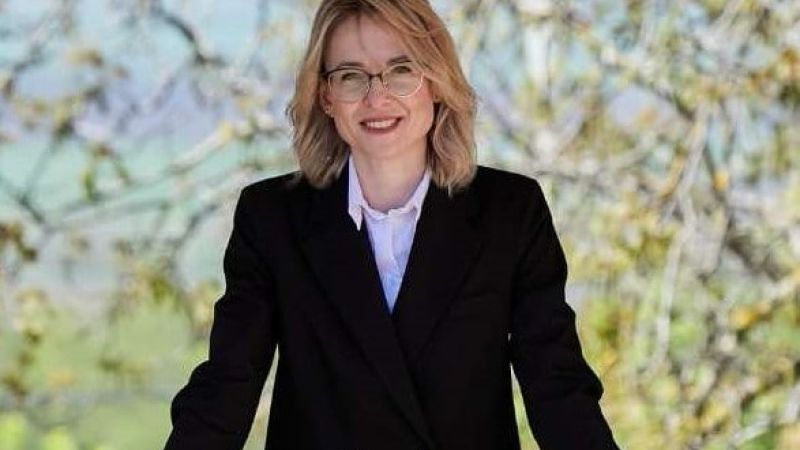
Cornelia has a comprehensive background related to initiatives supported by international donors both for the public administration and in civil society. Her previous experience as training and local coordinator and a proven track record in planning, organizing and implementing project activities equipped her with skills in liaising with stakeholders, advising project management, ensuring quality outputs, maintaining budgetary compliance, drafting project documents. Cornelia’s prior roles also include assisting EU High-Level Advisers in education and financial-banking sectors, along with roles as a translator/interpreter providing language support and logistical assistance.
Junior Non-Key Expert/Assistant of the EU High Level Adviser on Environment and Green Transition
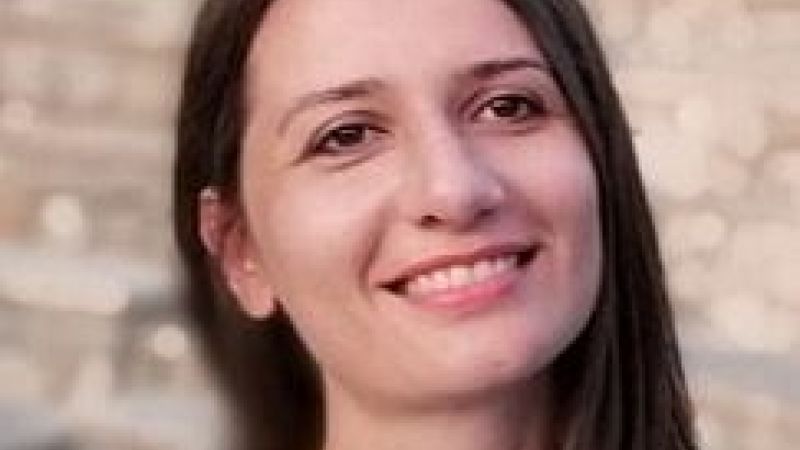
Ala Camerzan has over 6 years of experience in supporting programmes and projects’ implementation within UNDP Moldova in the environment field, gaining valuable project management skills and deep knowledge on UN Sustainable Development Goals focused on Environmental sustainability and resilience in the Republic Moldova.
She has excellent leadership and communication skills acquired and developed through volunteering experience within the Youth in Action Program in the fields of environmental protection, as well as extensive experience of working harmoniously and effectively with other people from a wide range of backgrounds and countries during her international experience.
Ala holds an international Master of Science in Business Economics and Management and a Bachelor’s degree in Economics.
Junior Non-Key Expert/Assistant of the EU High Level Adviser on Anticorruption
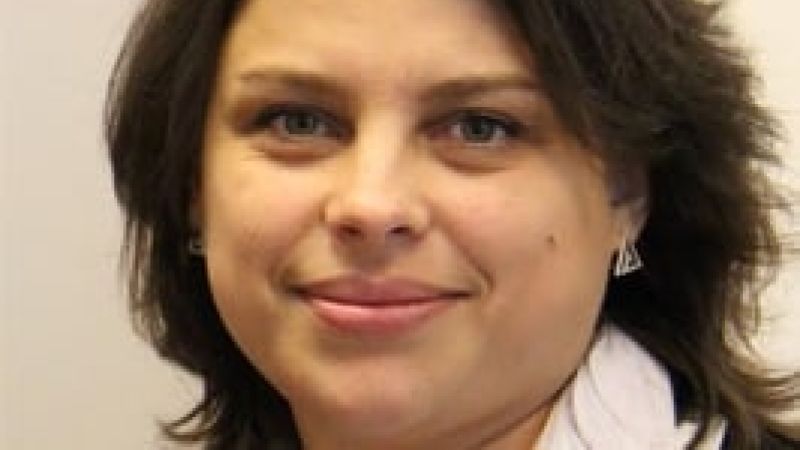
Having licentiate degree in Spanish and English Languages as well as in Business Law, Cristina has more than 15 years of hands-on experience in translation and interpretation, being employed as translator/interpreter on ad hoc (freelancer) and regular bases by various EU and USAID funded projects. She also gained experience in working as local facilitator, providing assistance and support during Deloitte Consulting missions to Moldova. Cristina is detail oriented and reliable person, open for new knowledge and committed to meet deadlines.
Junior Non-Key Expert/Assistant of the EU High Level Adviser on Justice and Prosecution
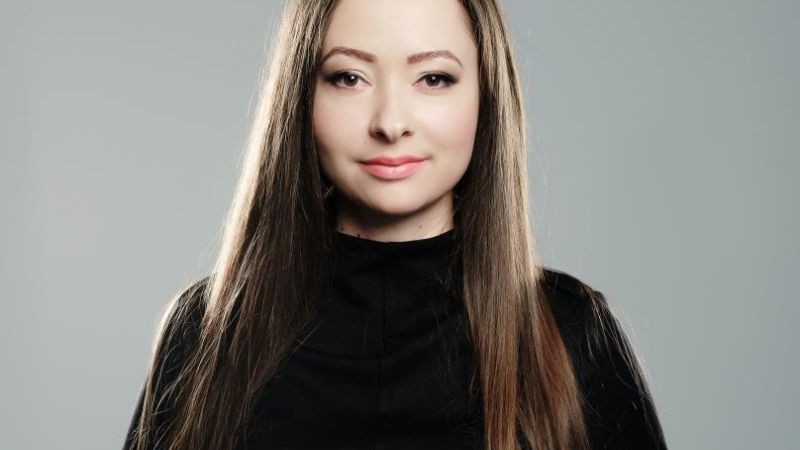
Marina is a lawyer with five years of legal experience. Her area of expertise is business operations and commerce, mergers and acquisitions, corporate governance and restructuring, litigation.
Marina consulted previously on projects related to infrastructure, energy field and contributed to different publications on the Moldovan regulatory, doing business, as well as justice reform.
Currently, her subject of interest has switched to the banking and finance sector. Marina holds a Bachelor and Master of Laws degree.
Junior Non-Key Expert/Assistant of the EU High Level Adviser on Reforms Coordination
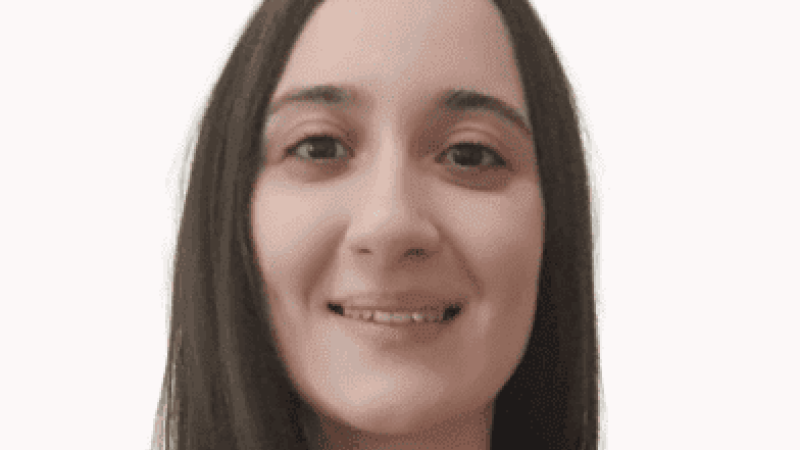
Ina Camerzan holds a Bachelor’s and Master’s Degree in Economics from the Academy of Economic Studies of Moldova. Also, she is a graduate of an Intensive Programme in European Law and Economics at the Riga Graduate School of Law.
Before joining the HLA Mission Project team, Ina worked in an anti-corruption project implemented by the Council of Europe Office in Chisinau, closely interlinked with the reform processes initiated by the government and their obligations towards implementing international standards against corruption and the related monitoring recommendations. She also has experience in the administration of grants in education at the American Councils for International Education, as well as in providing translations and reporting support in different internationally-funded projects in supporting agriculture.
Junior Non-Key Expert/Assistant of the EU High Level Adviser on Public Finance Management
STAGII
CRITERII DE ELIGIBILITATE:
- Cetățenia Republicii Moldova;
- Înscrierea într-o instituție de învățământ superior din Republica Moldova sau din străinătate, ciclul I (Licență) sau ciclul II (Master), ori statutul de absolvent recent al unei instituții de învățământ superior;
- Vârsta – până la 30 de ani la momentul aplicării la Program;
- Cunoașterea fluentă a limbii române;
- Cunoașterea avansată a limbii engleze (cel puțin nivelul B2);
- Implicare activă în activități extracurriculare, poziție civică activă;
- Rezultate academice bune (pe baza mediei aplicațiilor primite);
- Motivație pentru o carieră în serviciul public în Republica Moldova.


DURATA ȘI PLASAREA
Durata stagiului este de două luni, indicativ: 30 iunie – 29 august 2025.
Stagiarii vor fi plasați în instituții publice de nivel central, cu titlu indicativ, în cele în care activează un Înalt Consilier UE. Stagiarii pot fi, de asemenea, alocați instituțiilor fără un Înalt Consilier UE desemnat, dar fiind sub mentoratul unui Înalt Consilier UE, în cazul în care există un interes confirmat din partea instituției și relevanță pentru sectoarele de intervenție ale Înaltului Consilier UE și/sau pentru subiectele clusterelor de negociere UE – RM.
Stagiarii vor fi îndrumați în activitățile lor zilnice de către Înalți Consilieri UE și/sau Experți Seniori non-cheie, și de personalul instituției gazdă. La finalul Programului de stagii, personalul instituției gazdă va prezenta un raport de evaluare în care va aprecia performanțele stagiarilor.
Stagiul este conceput ca o activitate cu normă întreagă, cu o implicare de 8 ore/zi, cu prezență fizică. Participarea cu normă parțială la Program nu se acceptă.
TEMATICA PROGRAMULUI DE STAGII
Programul de stagii se axează pe tematici ce țin de relațiile UE – Republica Moldova, în special pe procesul de integrare europeană.
Având în vedere etapa actuală a relațiilor UE – Republica Moldova, ediția din 2025 a Programului va aborda subiecte legate de negocierile de aderare.


BURSĂ
Bursele de stagiu vor fi oferite unui număr maxim de 70 de stagiari. De asemenea, în cazul în care există un număr mai mare de potențiali stagiari și un interes și o disponibilitate confirmată din partea instituțiilor gazdă, se pot acorda stagii fără plată.
Bursa lunară constituie 200 de euro brut și se plătește în lei la cursul de schimb INFOREURO din luna de plată (https://ec.europa.eu/info/funding-tenders/procedures-guidelines-tenders/information-contractors-and-beneficiaries/exchange-rate-inforeuro_ro). Impozitele vor fi deduse din această sumă conform legislației în vigoare.
Bursa va fi achitată cu condiția implicării cu normă întreagă în Programul de stagii, dovedită printr-o fișă de pontaj completată cu o scurtă descriere a activităților, semnată de către stagiar și Înaltul Consilier UE (mentor) corespunzător. Bursa pentru cea de-a doua lună se va plăti pe baza unei fișe de pontaj însoțită de un Raport final.
DEPUNEREA DOSARELOR
Înscrierea la Programul de stagii se va face prin depunerea electronică a CV-ului și a scrisorii de motivație la adresa de email: stagii@eu4moldova.eu.
Candidații trebuie să confirme că oferă acces organizatorilor la datele lor personale, care vor fi utilizate exclusiv în scopul Programului. Dosarele transmise după termenul-limită de 20 mai 2025 și/sau cele incomplete nu vor fi luate în considerare.


SELECȚIE
Selecția va avea loc în mai multe etape.
Prima etapă va include un proces de preselecție prin care se verifică dacă dosarele depuse sunt complete și corespund cerințelor stabilite în „CRITERII DE ELIGIBILITATE”. Preselecția se va desfășura imediat după termenul limită de depunere a dosarelor, în perioada (cu caracter orientativ) 20-27 mai. Candidații vor fi considerați preselectați dacă îndeplinesc toate criteriile de eligibilitate și dacă au completat toate câmpurile din „Formularul de candidatură”, depunând toate documentele solicitate. Dosarele incomplete vor fi respinse automat.
A doua etapă a procesului de selecție va include un interviu cu membrii Comisiei de selecție, format din reprezentanți ai Delegației Uniunii Europene, Guvernului și proiectului finanțat de UE „Moldova este Europa – Sprijin pentru integrarea în UE”. Interviurile vor fi susținute în limba română și engleză și vor fi axate pe subiecte referitoare la integrarea în UE. Calendarul orientativ pentru etapa de interviuri este 28 mai – 4 iunie. Interviurile vor fi organizate, în temei, cu prezență fizică, dar pot avea loc și online. Membrii Comisiei de selecție vor completa un Chestionar de evaluare, marcând în grilă aprecierea lor asupra unor aspecte, precum fluența în limba engleză, abilitățile de prezentare, motivația, cunoștințe despre relațiile UE – RM, cunoștințe despre aspecte politice, economice și sociale etc.
Pe baza rezultatelor interviurilor, se va întocmi un clasament al candidaților, începând cu punctajul cel mai mare. Până la 70 de candidați, cei mai bine clasați, pot fi acceptați în program. Alternativ, membrii Comisiei de selecție pot conveni asupra unui punctaj minim considerat de trecere, iar numărul de stagiari selectați va fi determinat de cei care ating punctajul minim.
REPARTIZAREA ÎN INSTITUȚIILE GAZDĂ
Comisia de Selecție va repartiza participanții selectați în instituțiile gazdă în funcție de pregătirea academică (și profesională), în limita disponibilității locurilor de stagiu și a mentorilor. Comisia nu poate garanta repartizarea stagiarilor într-o instituție/sector anume, dar va încerca să realizeze cele mai potrivite repartizări, ținând cont de profilul stagiarului și de necesitățile instituției gazdă.
După repartizarea într-o instituție, stagiarul poate fi implicat în activitățile altei instituții, coordonate de un Înalt Consilier UE, dacă există interes din partea stagiarului și disponibilitate a mentorilor, cu condiția transmiterii unei notificări scrise către echipa proiectului.


ACTIVITĂȚI & CERTIFICARE
Stagiarii vor desfășura activități la solicitarea mentorilor, în conformitate cu responsabilitățile instituției gazdă. Stagiarii nu se vor implica în activități care nu au legătură cu aria de responsabilitate a instituției gazdă.
Stagiarii vor participa la activități comune organizate cu alți stagiari din Program, de către instituțiile beneficiare și/sau proiect – mese rotunde, conferințe, dezbateri etc. Participarea la aceste activități este obligatorie și considerată parte a Programului de stagii.
La finalizarea cu succes a celor două luni de stagiu și depunerea unui Raport final, stagiarii vor primi un Certificat care atestă participarea la Program.
CONTRACTE, PLĂȚI & RAPORTARE
Stagiarii vor semna un contract de stagiu în cadrul proiectului ”Moldova este Europa – Sprijin pentru integrarea în UE”. Pentru semnarea contractului, stagiarii vor furniza copia actului de identitate și dovada înscrierii academice/diploma de absolvire.
Pentru a primi bursa lunară, stagiarii trebuie să dețină un cont bancar valabil în Republica Moldova, în monedă națională. Detaliile bancare vor fi prezentate odată cu semnarea contractului, la începutul Programului de stagii.
Stagiarii vor completa lunar fișe de pontaj, cu o scurtă descriere a activităților zilnice, care vor fi semnate de către ei și de către mentori, și aduse în original la biroul proiectului în ultima zi a fiecărei luni de stagiu.
La sfârșitul perioadei de stagiu, stagiarii vor completa un Raport Final care va descrie experiența generală și va include un feedback despre aspectele pozitive și negative ale stagiului, precum și sugestii pentru îmbunătățirea domeniului în care și-au desfășurat activitatea.


CALENDAR
Ediția 2025 a Programului de stagii se va desfășura conform următorului calendar:
- 15 aprilie – 20 mai – depunerea dosarelor
- 20 mai – 27 mai – preselecția candidaților
- 28 mai – 4 iunie – interviuri cu candidații preselectați
- 4 iunie – 6 iunie – întocmirea clasamentului și luarea deciziilor de acceptare a candidaților în cadrul Programului și de repartizare a acestora către instituții
- 9 iunie – 13 iunie – notificarea candidaților selectați
- 16 iunie – 27 iunie – semnarea contractelor
- 30 iunie – începutul Programului de stagii
- 29 august – finalul Programului de stagii, înmânarea certificatelor, ceremonie festivă
Datele pot fi ușor ajustate în funcție de circumstanțele care ar putea apărea.
VIZIBILITATE


BENEFICII
În urma evaluării pozitive din partea mentorului instituției beneficiare, absolvenții Programului vor beneficia de următoarele facilități la intrarea în serviciul public: exceptare de la concurs în cazul aplicării pentru un post vacant în aceeași instituție în care s-a efectuat stagiul și exceptare de la perioada de probă în cazul aplicării pentru un post într-o subdiviziune a instituției în care și-au desfășurat stagiul – cu condiția efectuării a cel puțin încă o lună de stagiu (adică un total de trei luni de stagiu).
Mecanismul detaliat este descris în Legea nr. 123 din 2023 privind stagiul plătit în instituțiile statului. Beneficiile se acordă doar în condițiile îndeplinirii întocmai a cerințelor prevăzute în legislația națională.
Organizatorii pot decide realocarea stagiarului în Programul de Stagii administrat de Guvern sau menținerea acestuia în cadrul Programului derulat prin proiect (în cazurile în care instituția gazdă nu face parte din programul guvernamental de stagii plătite în instituțiile statului).
ȘTIRI
